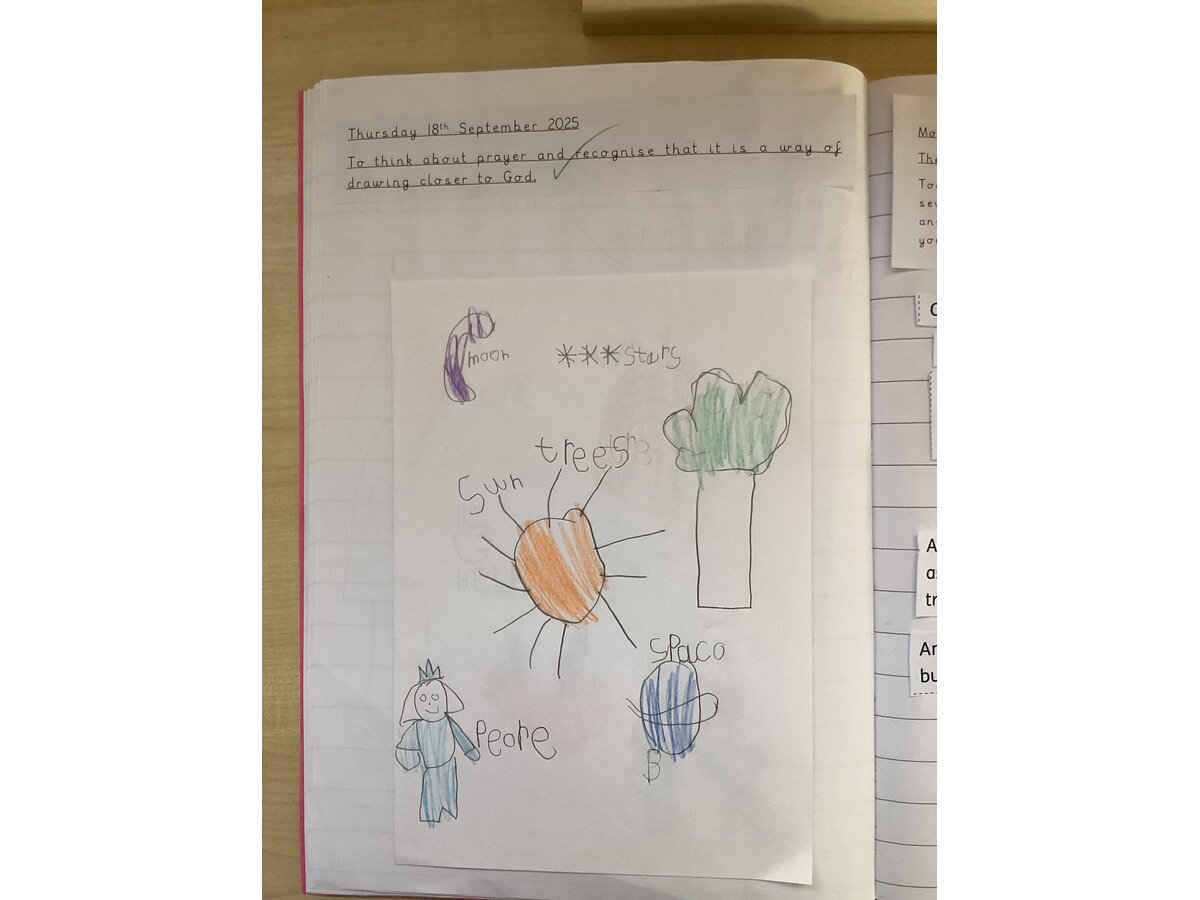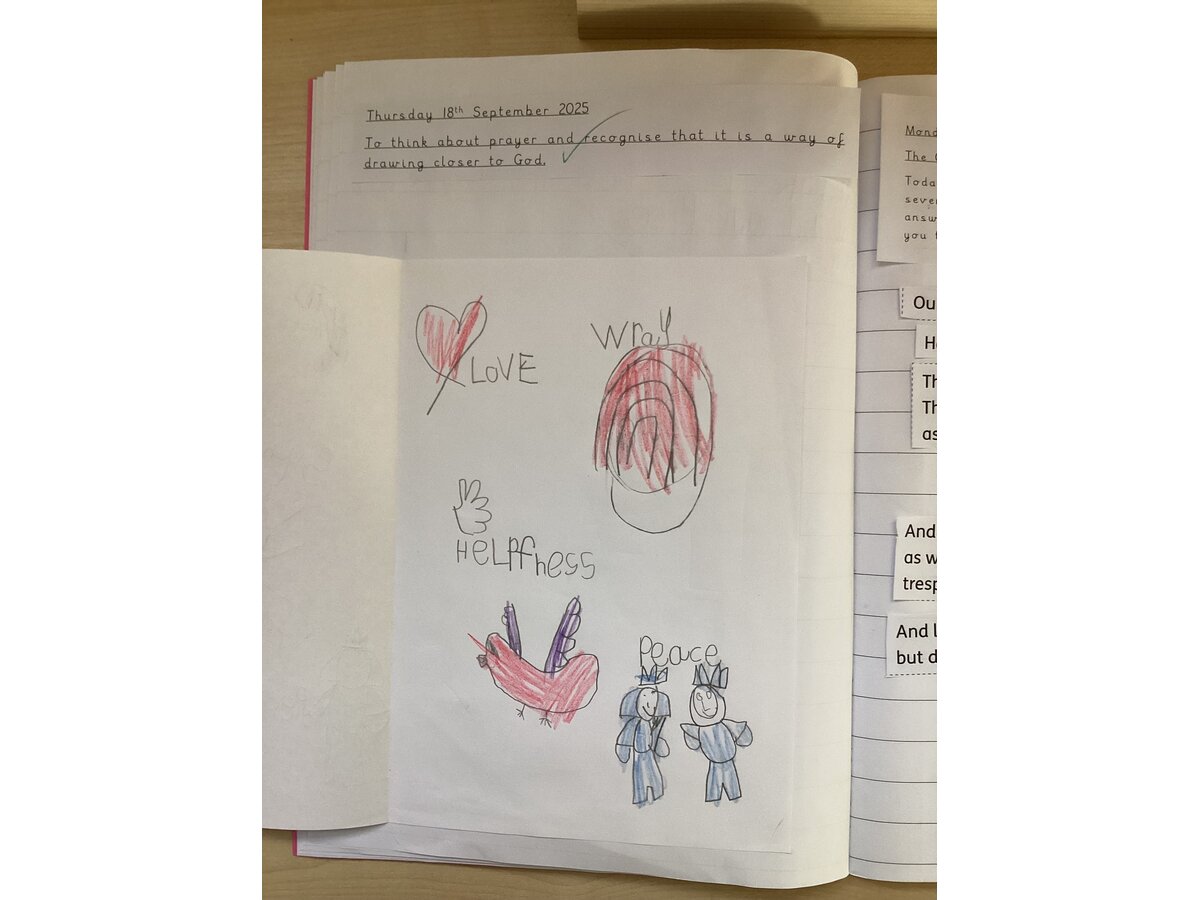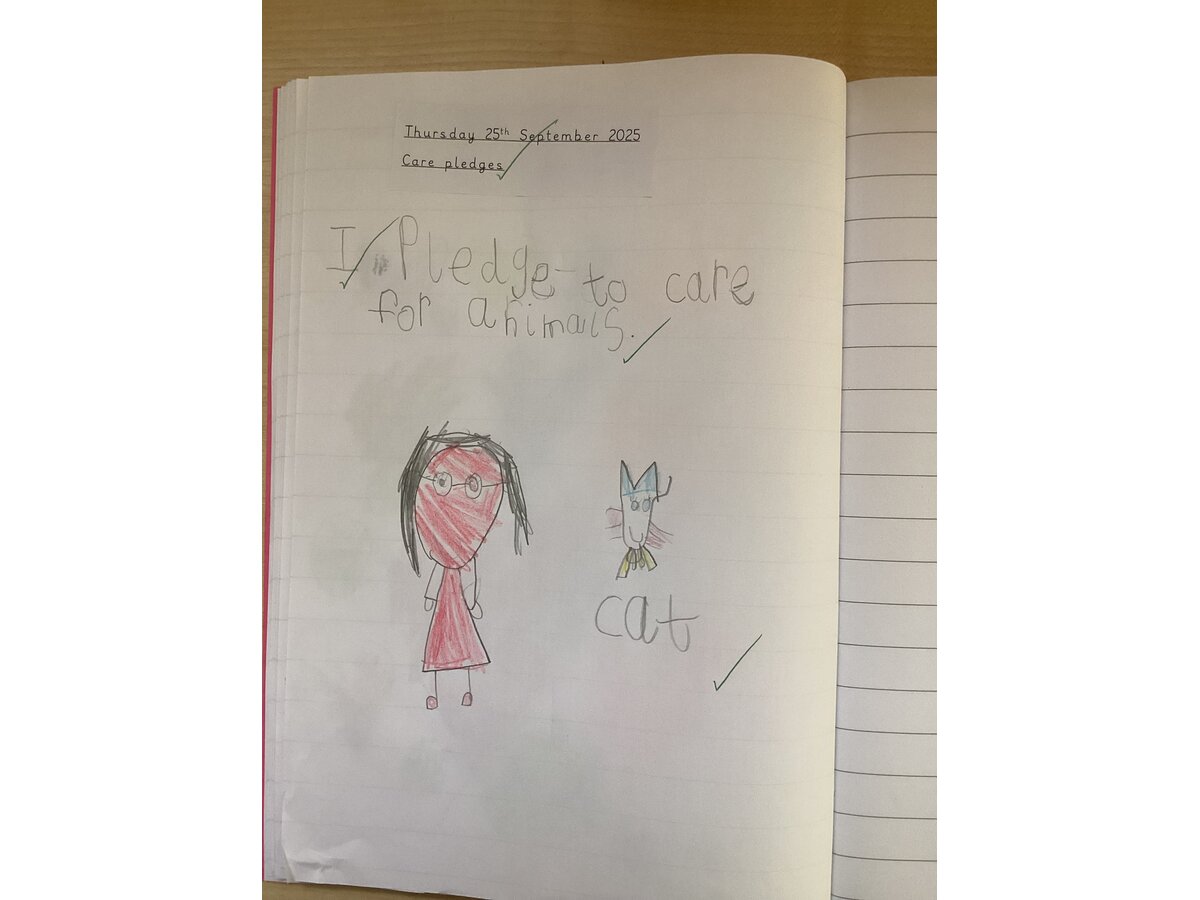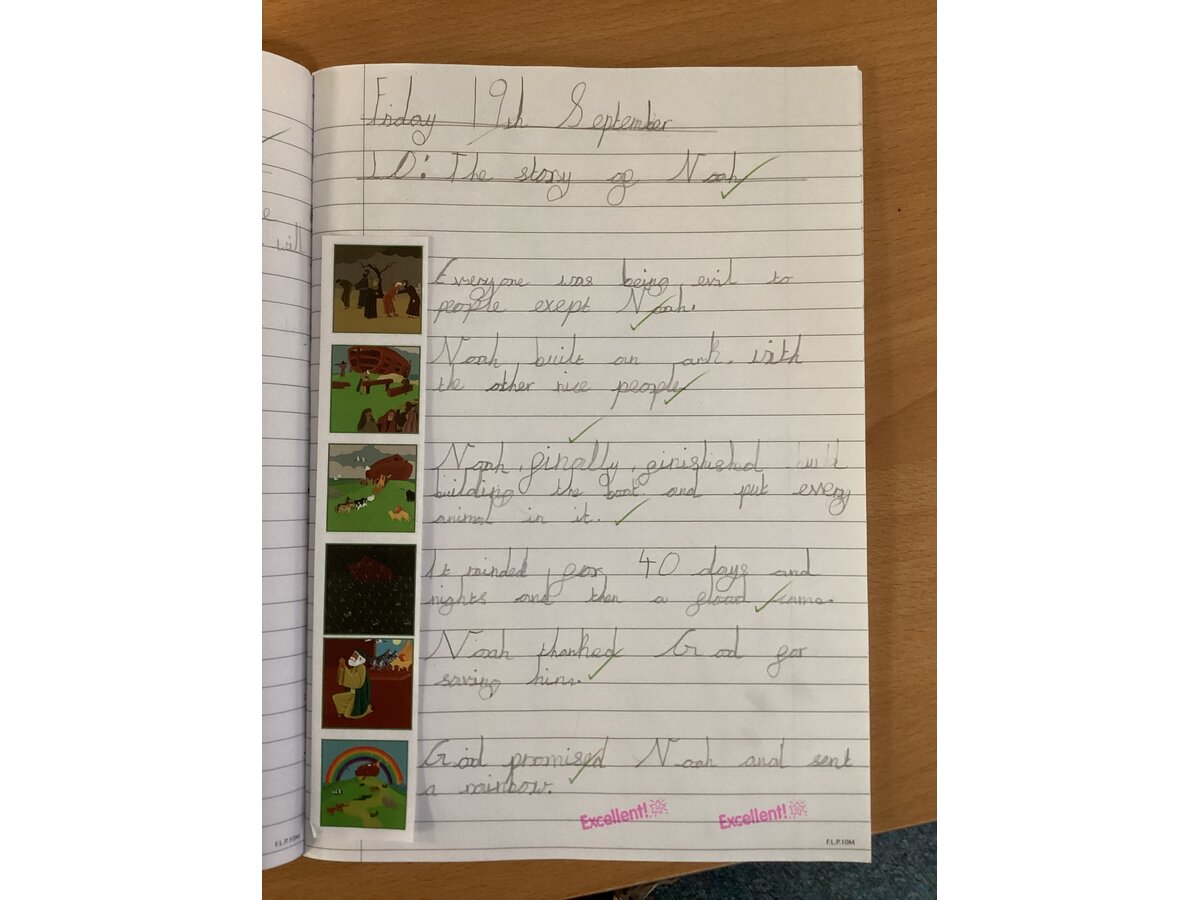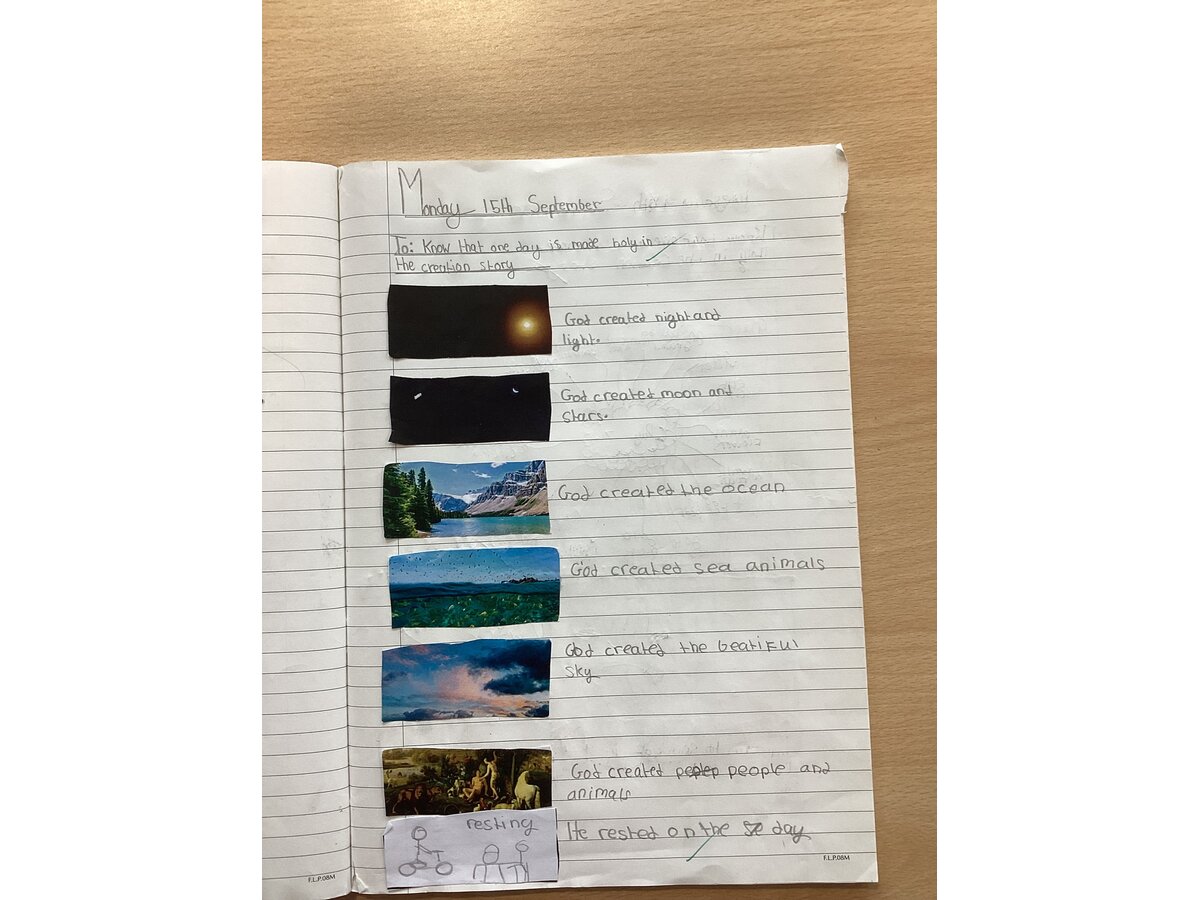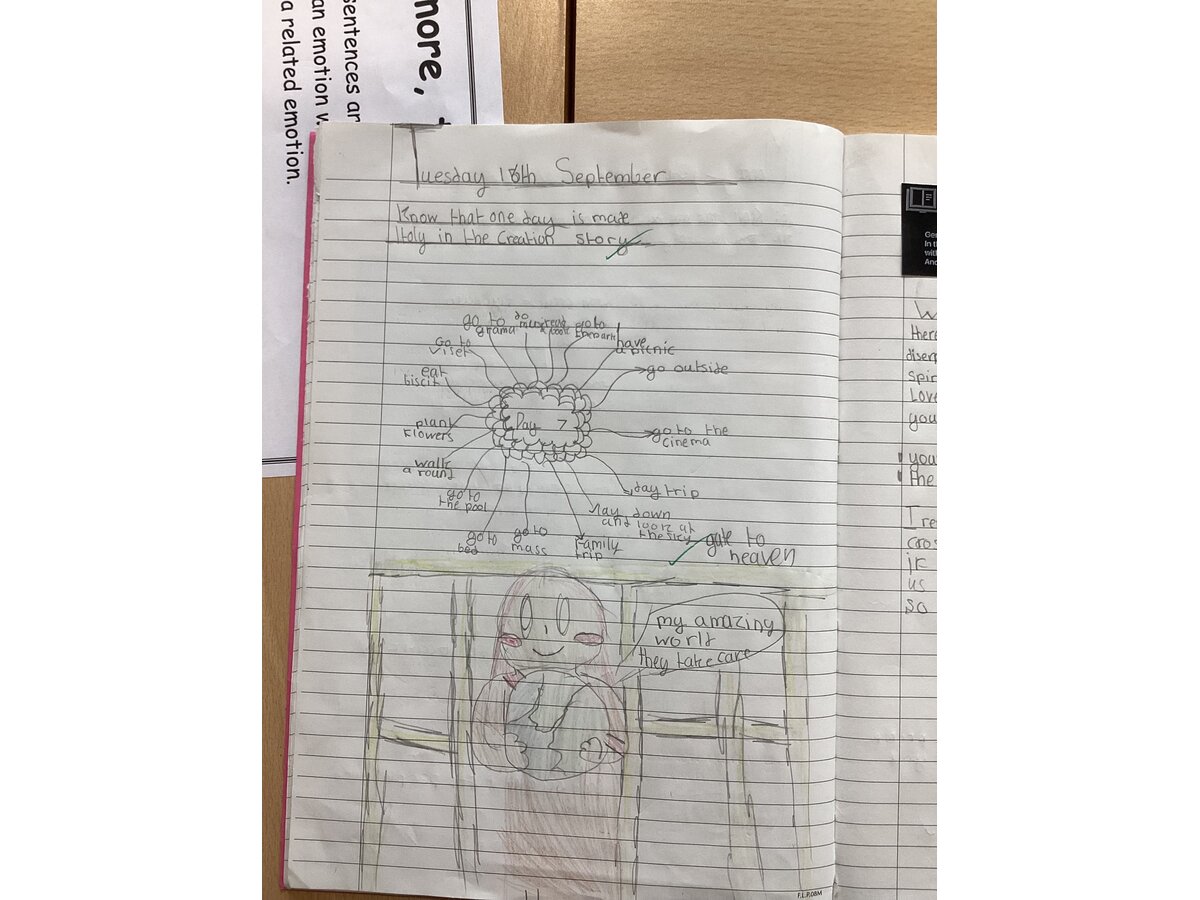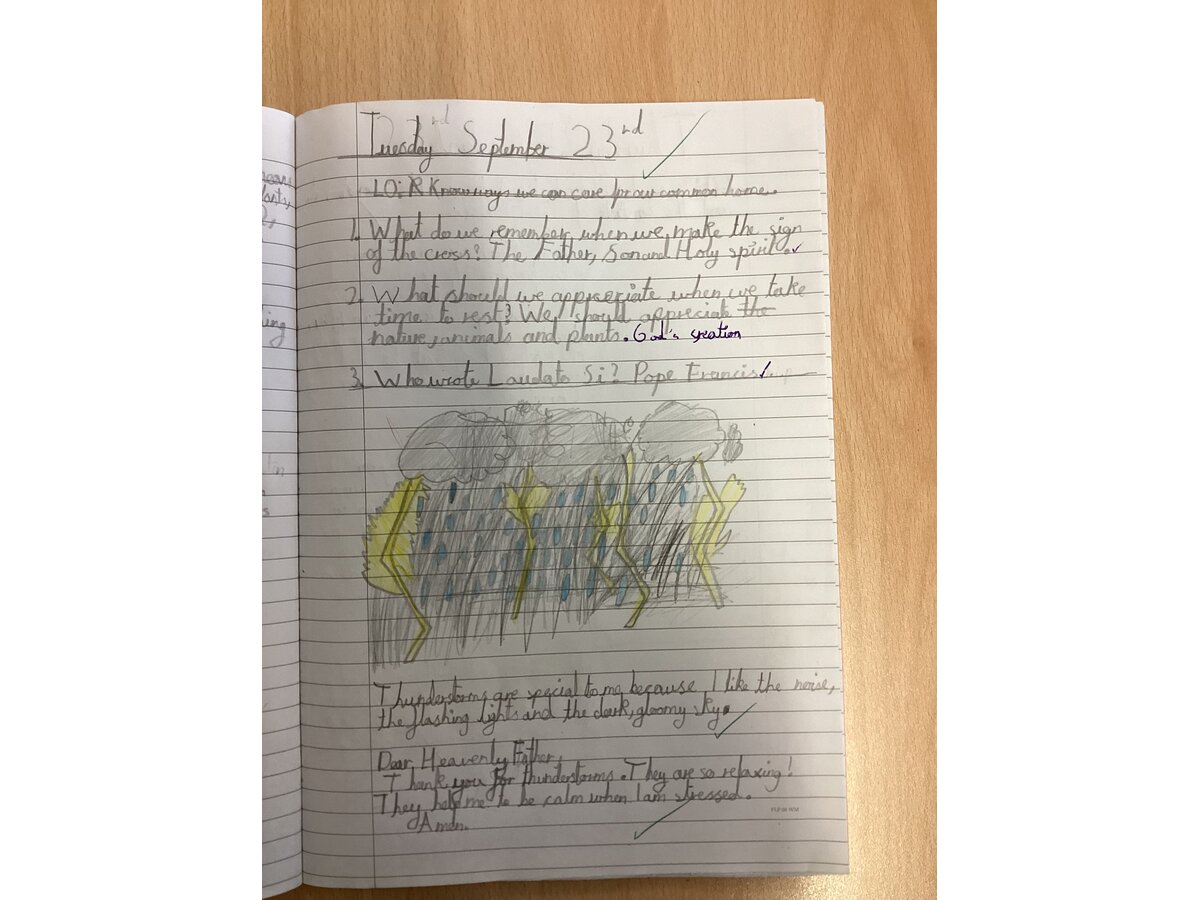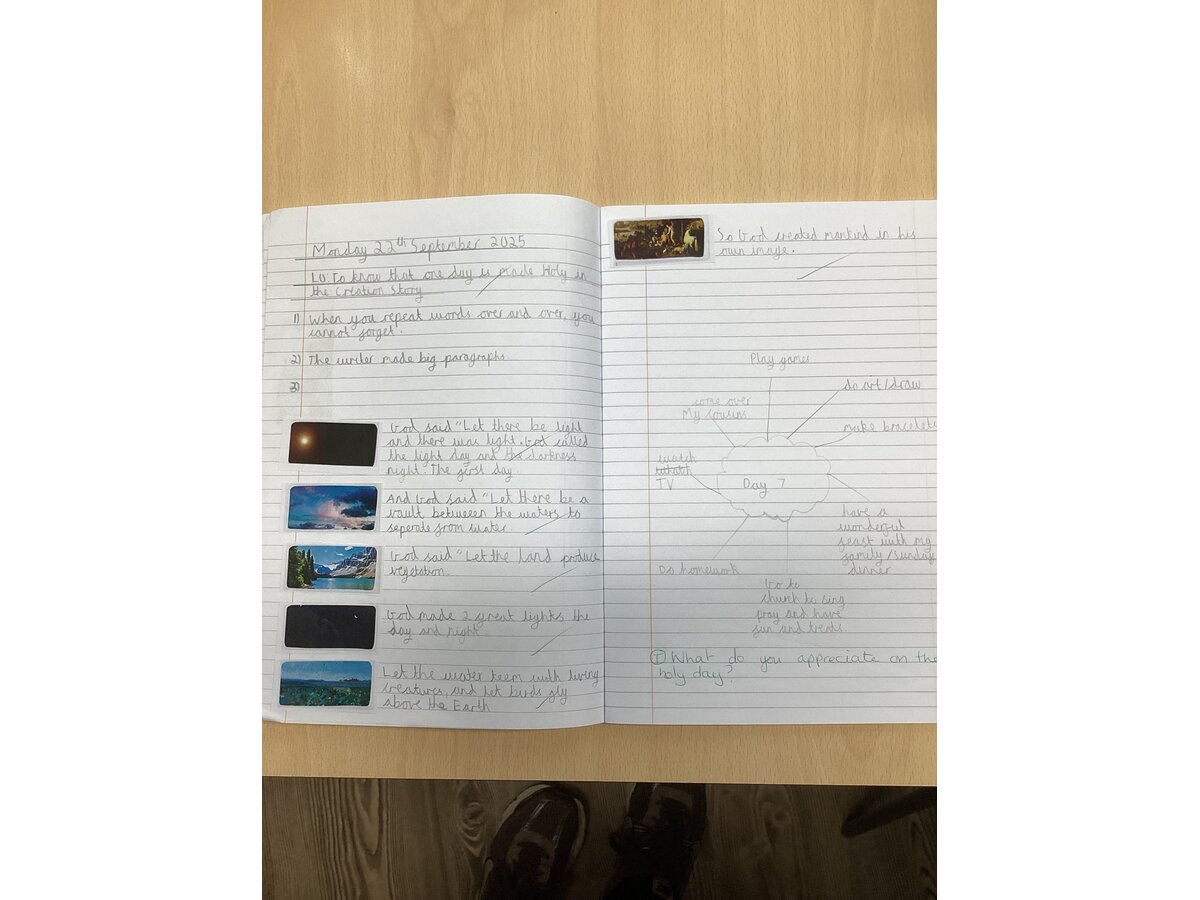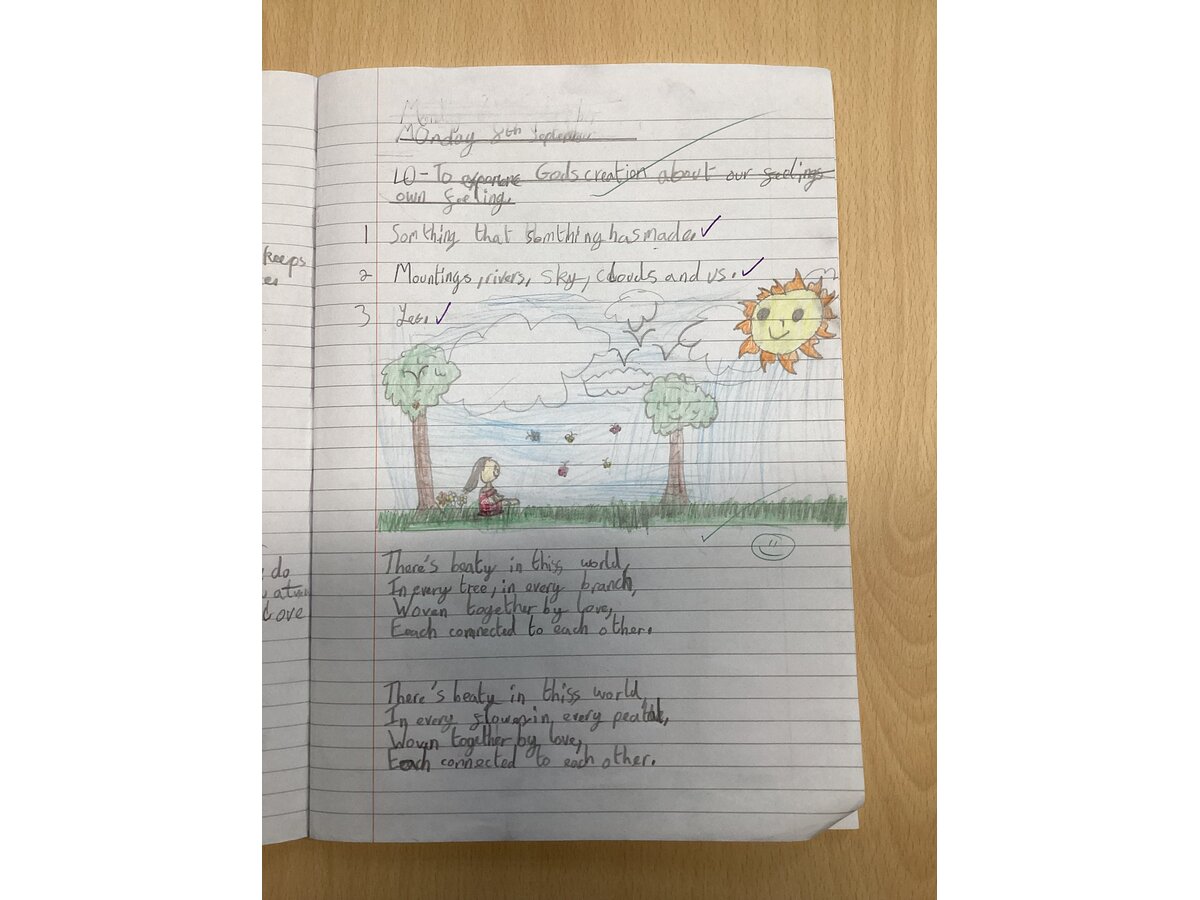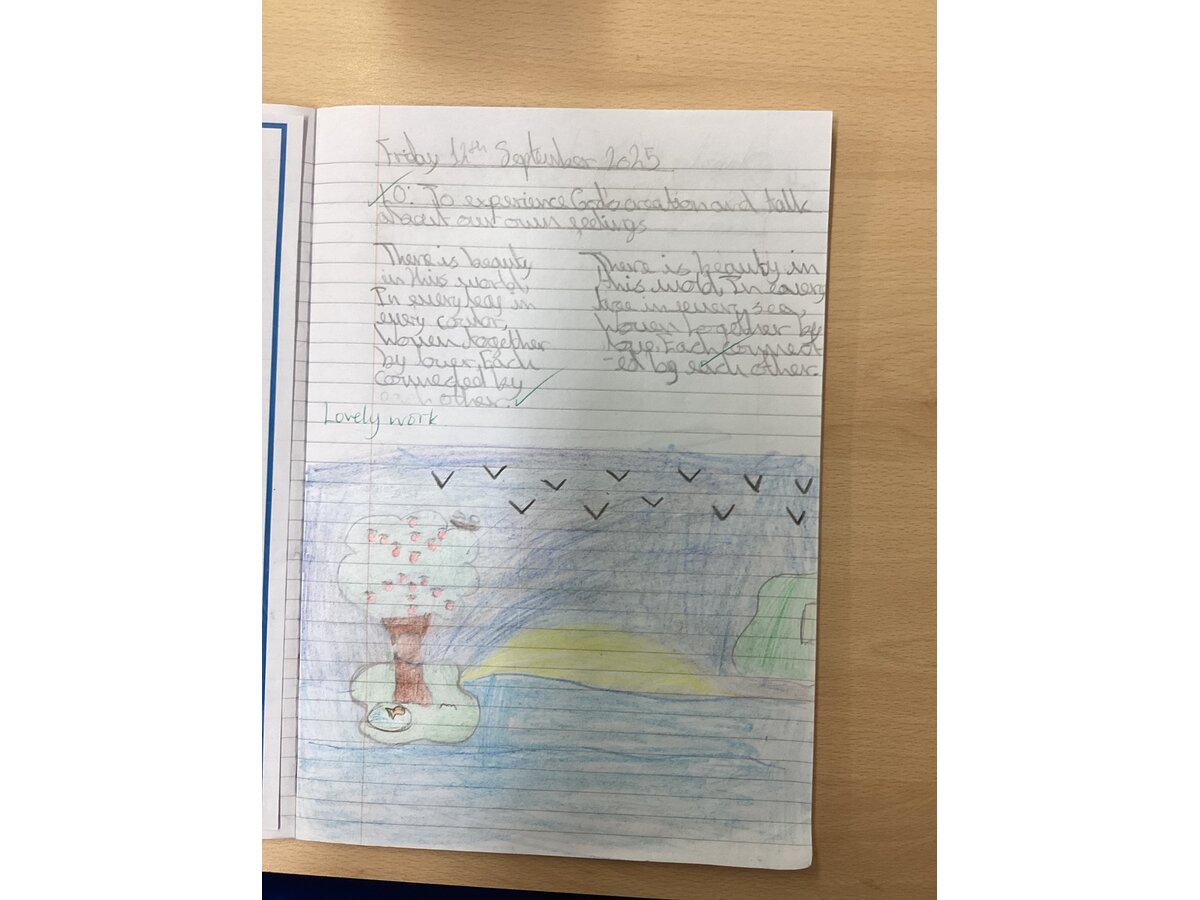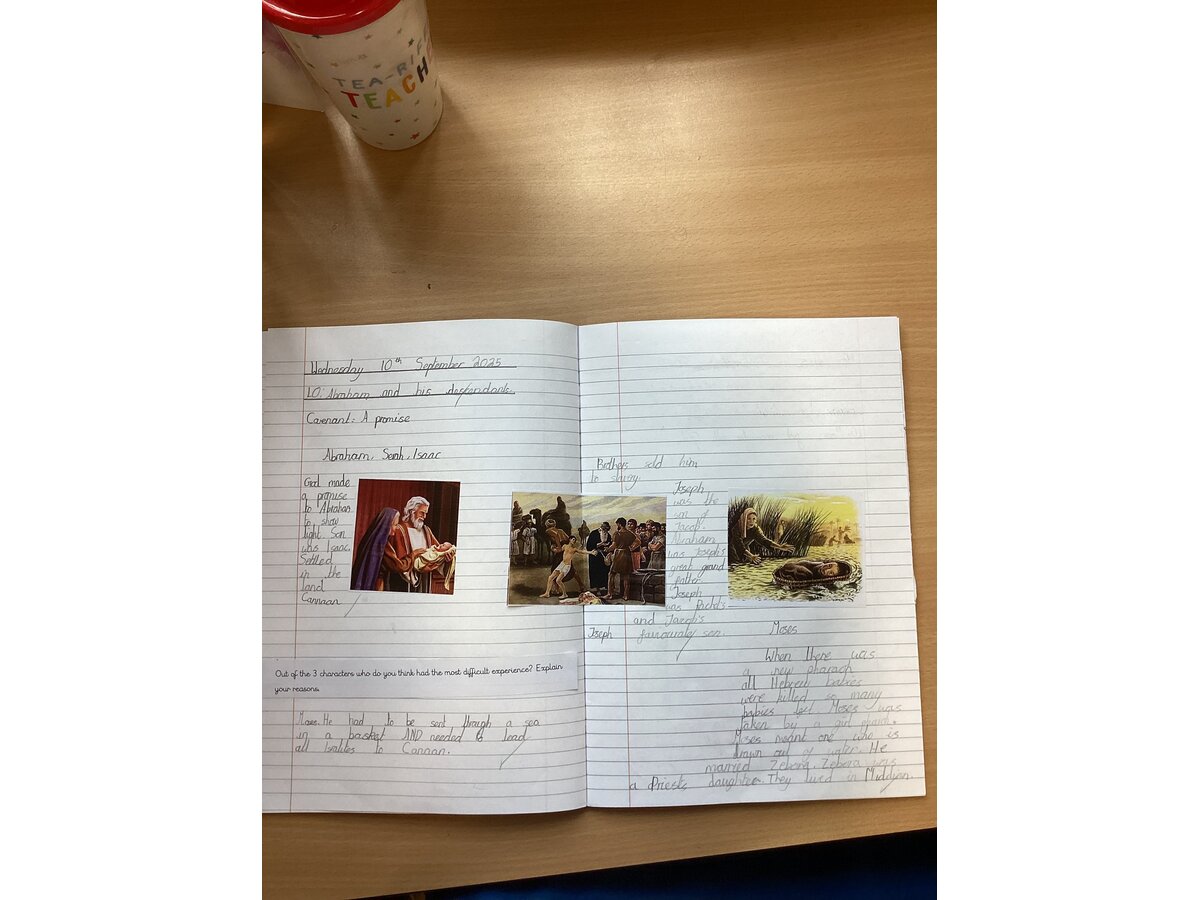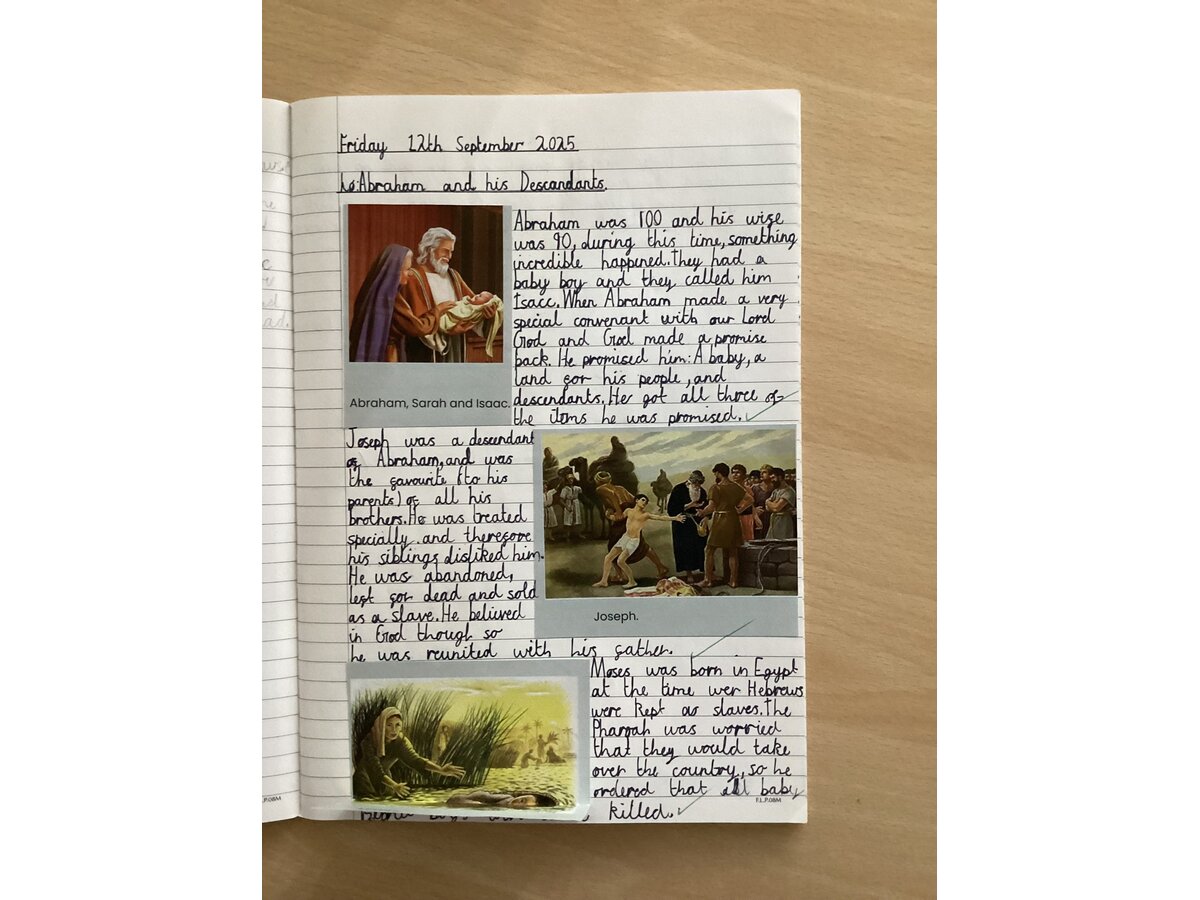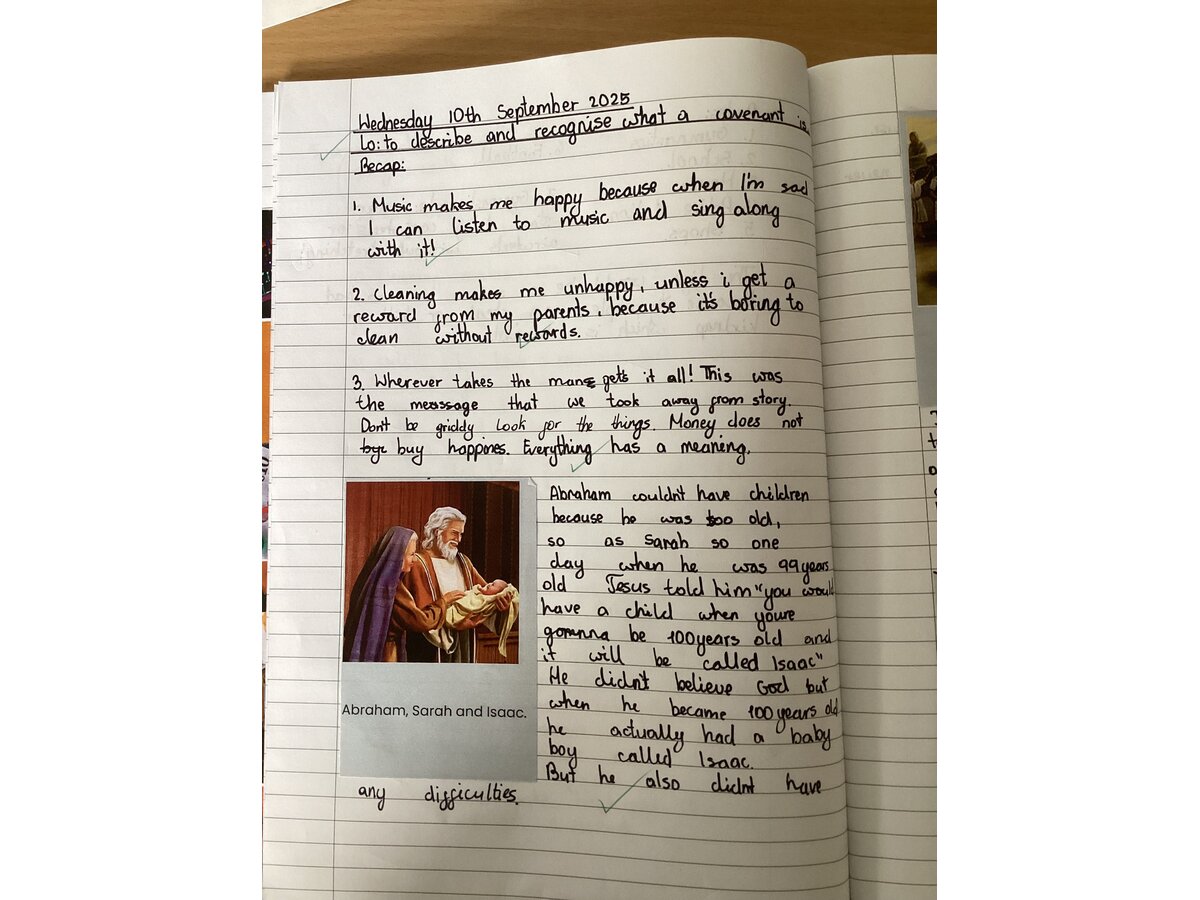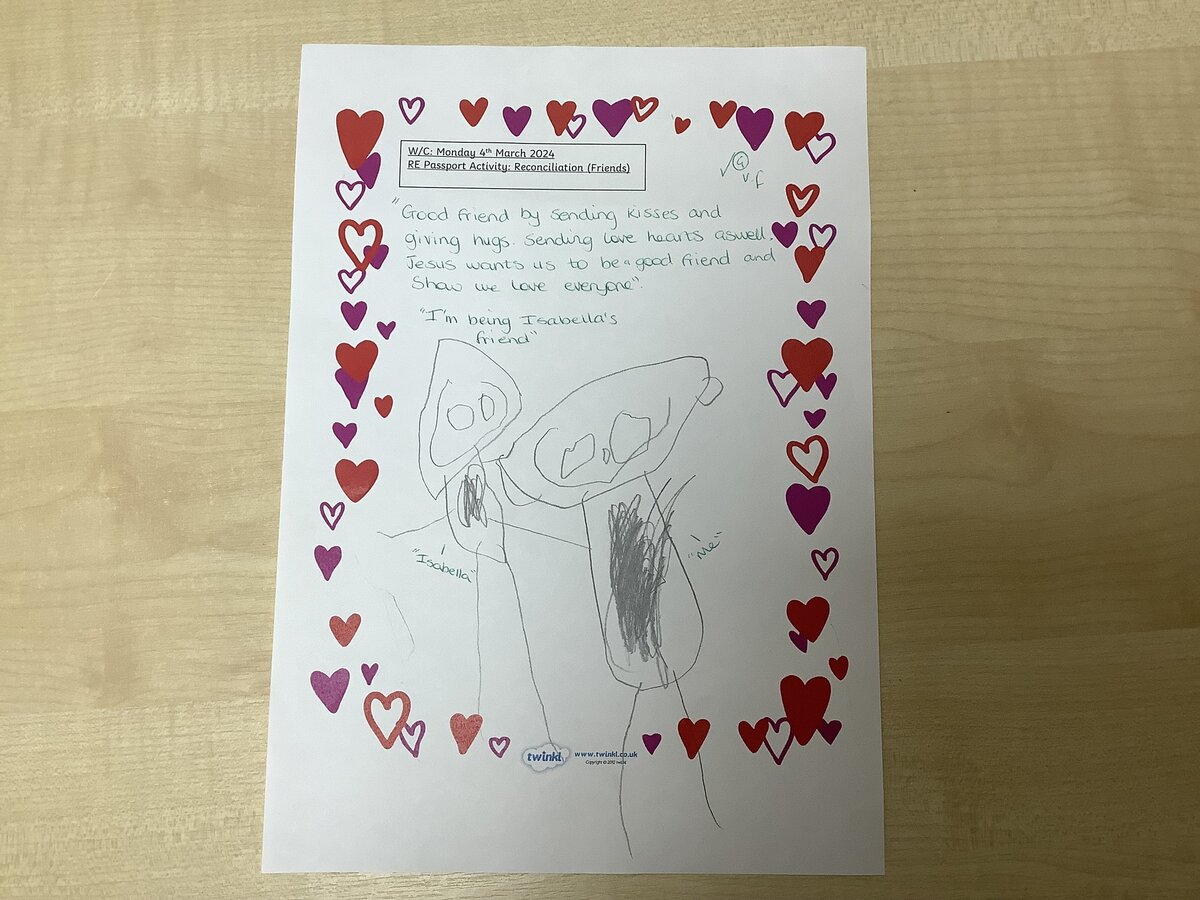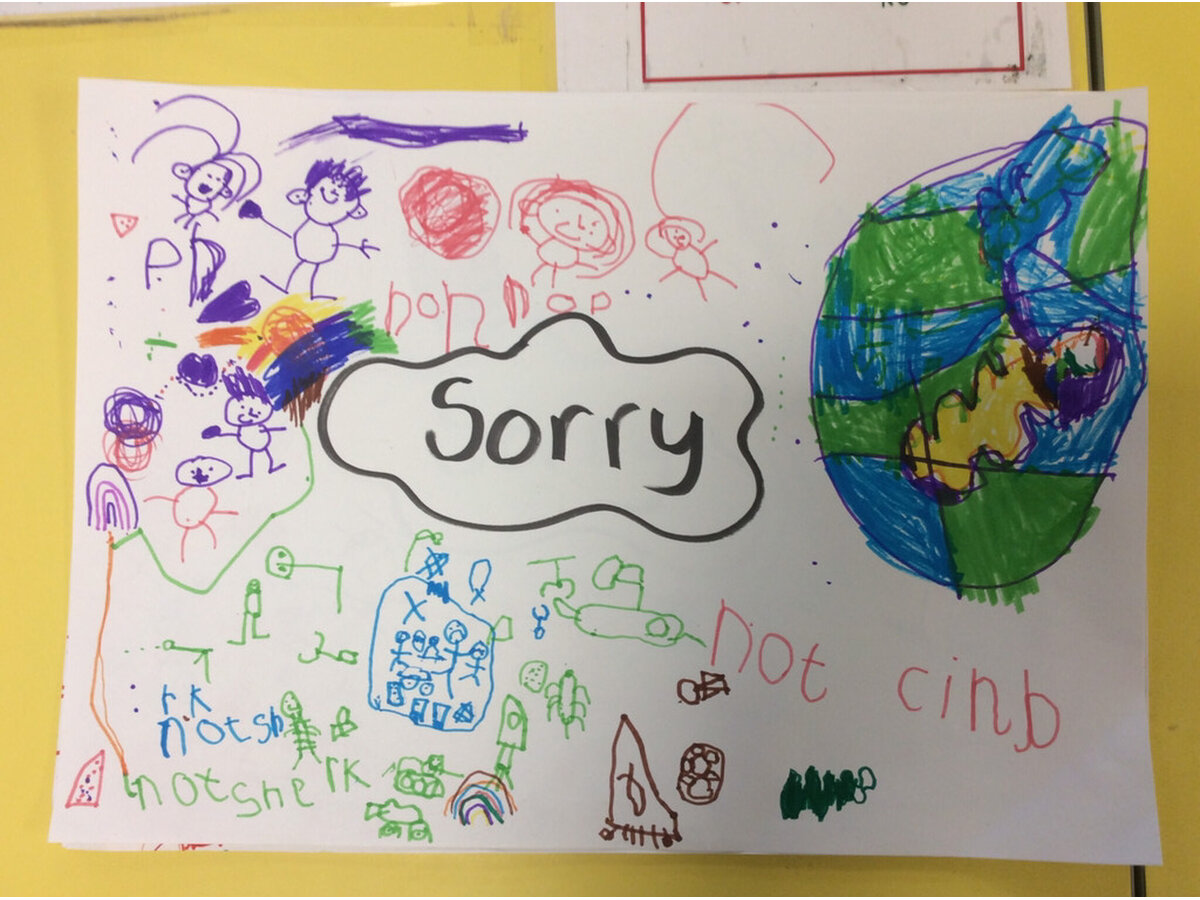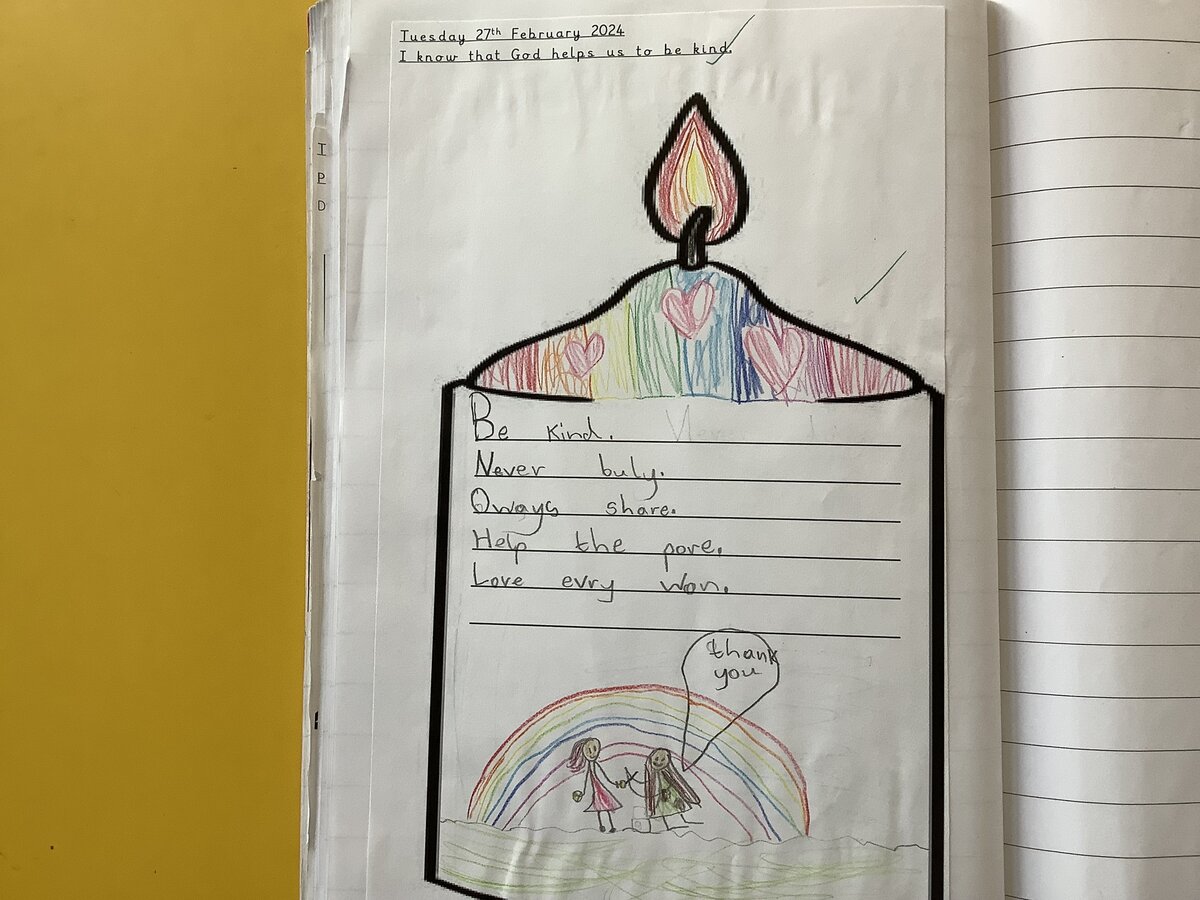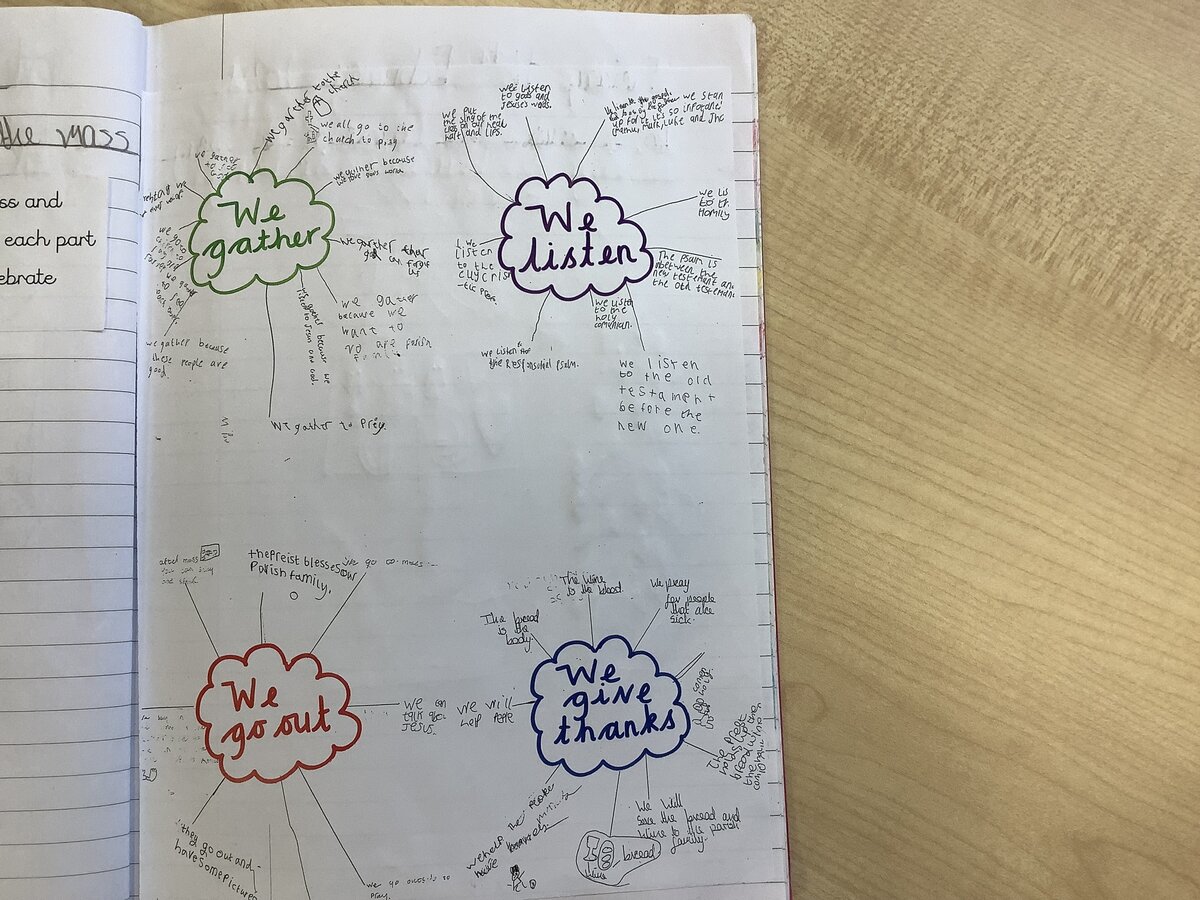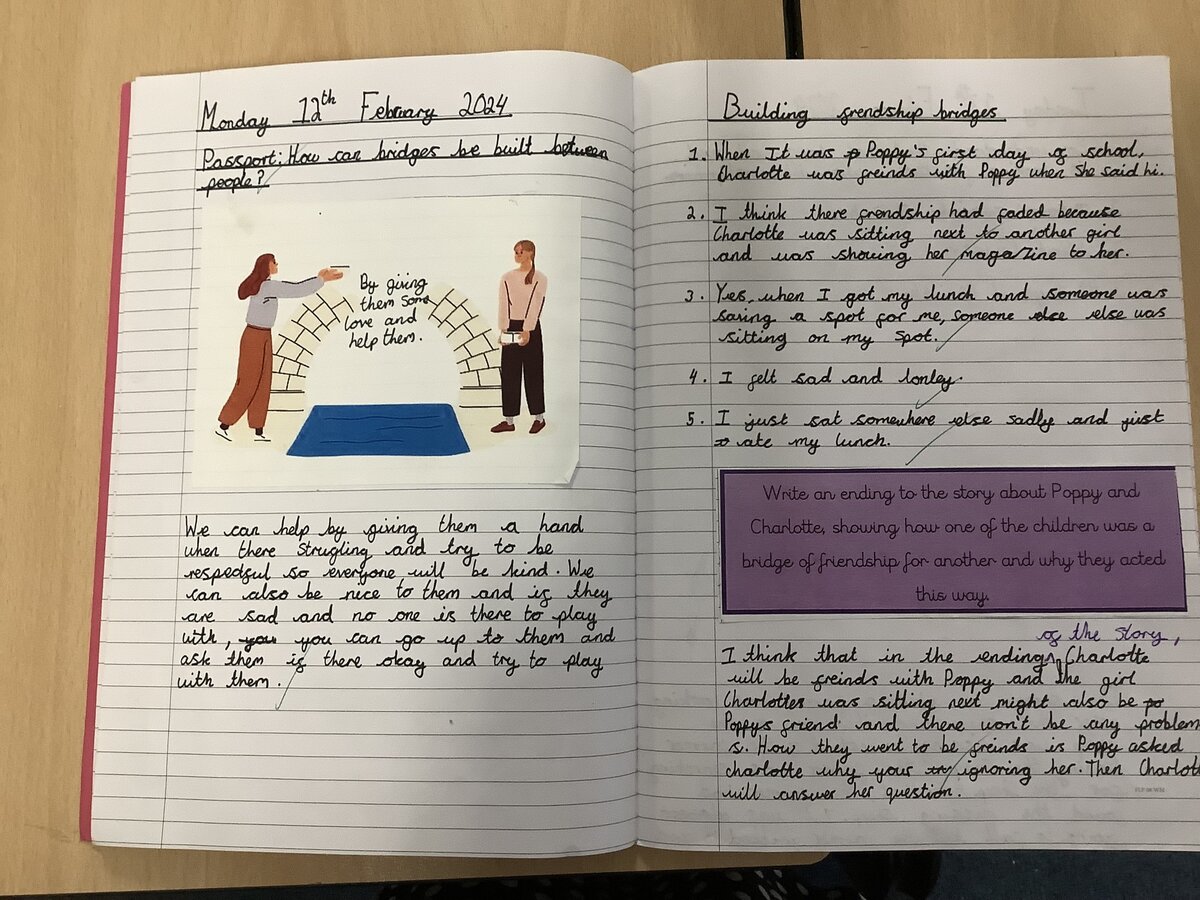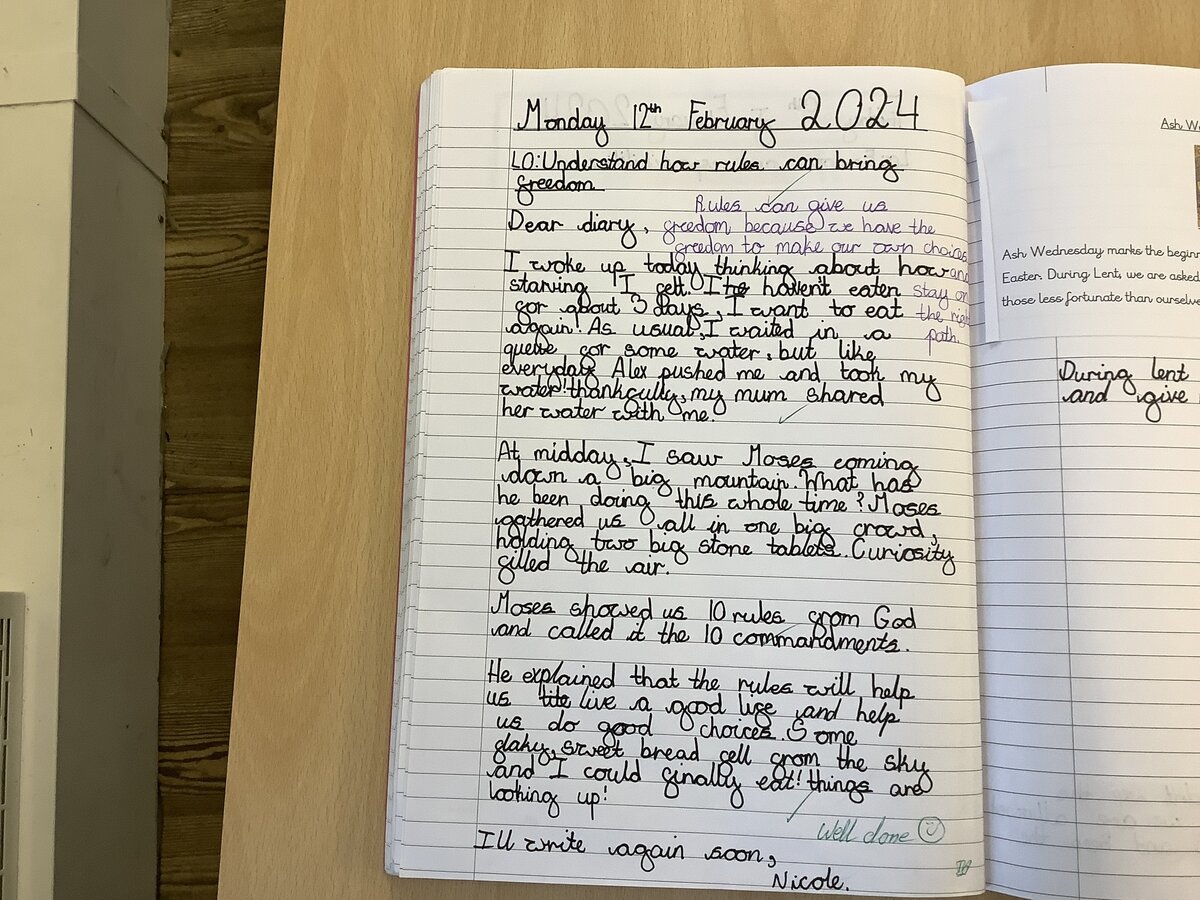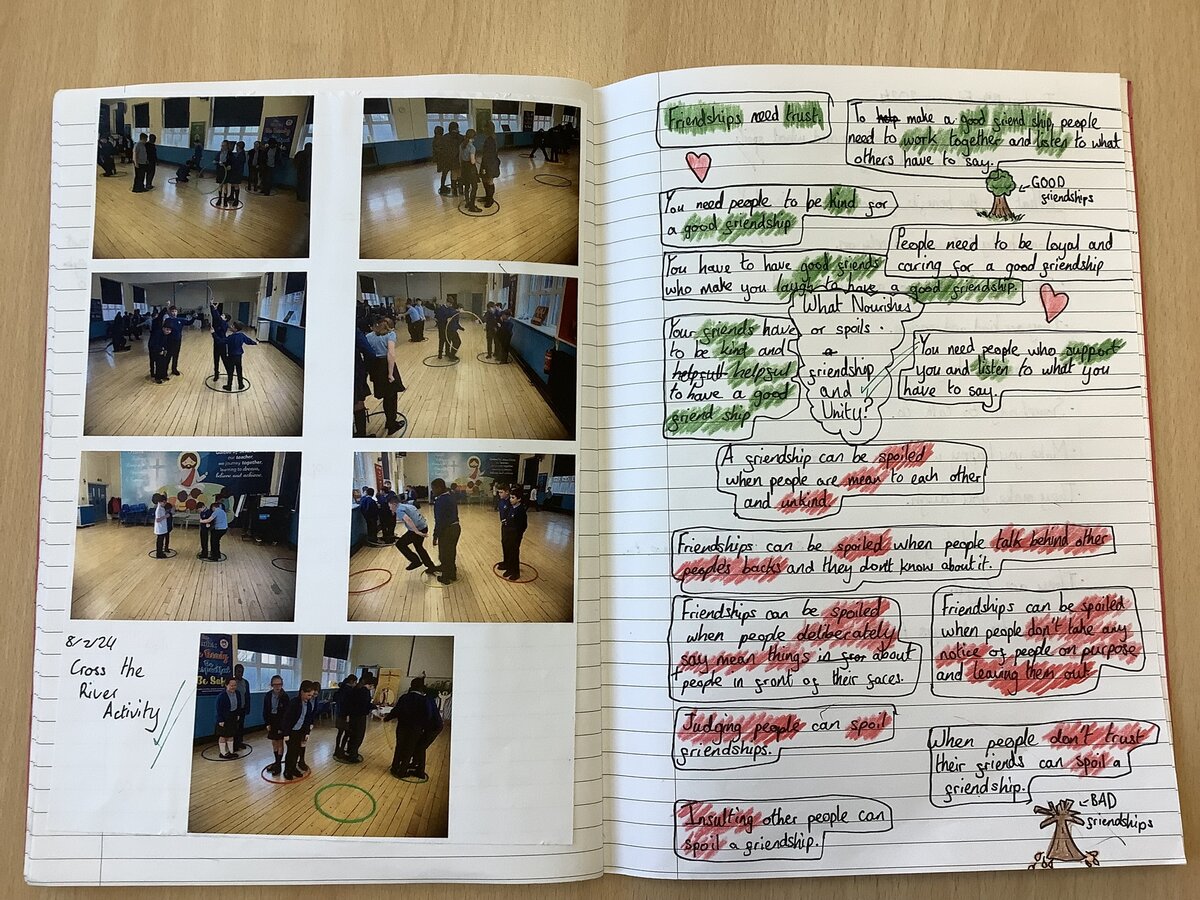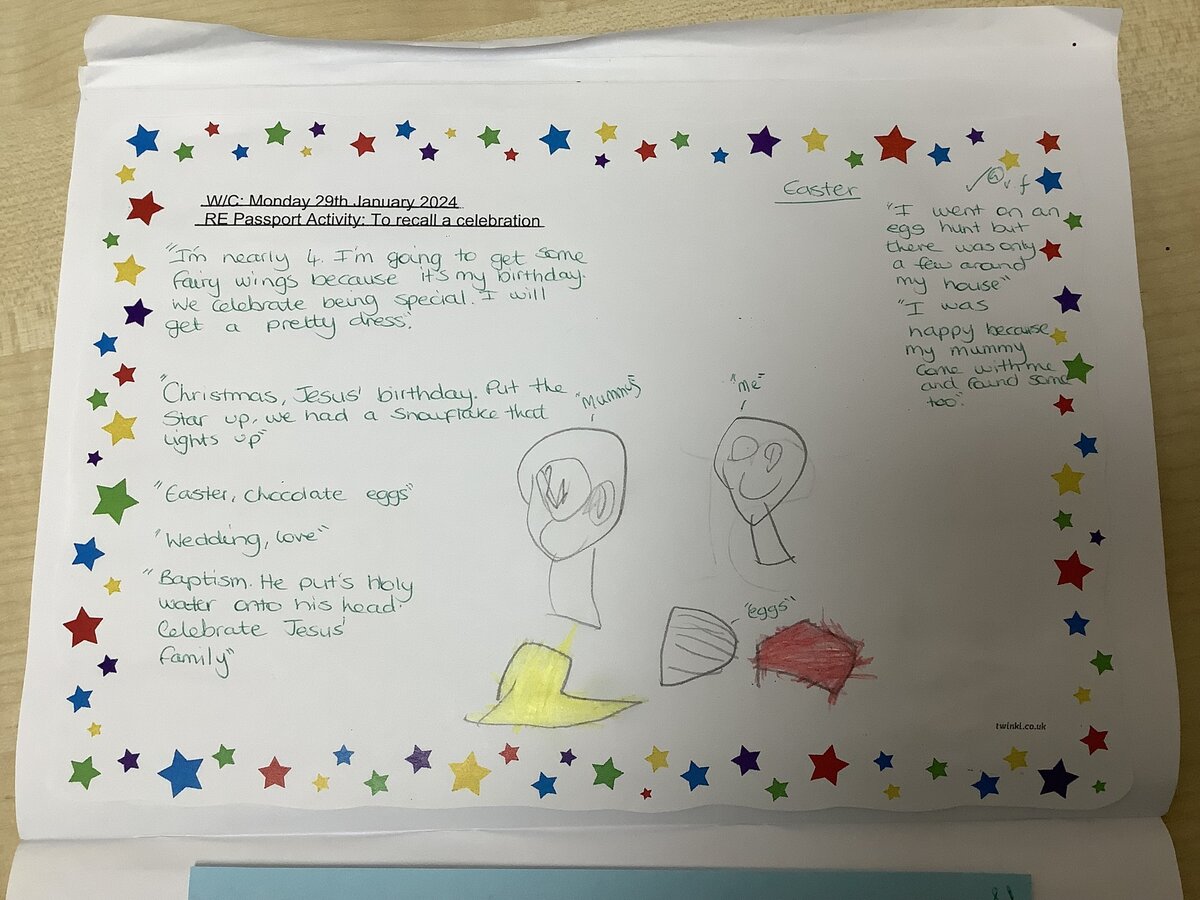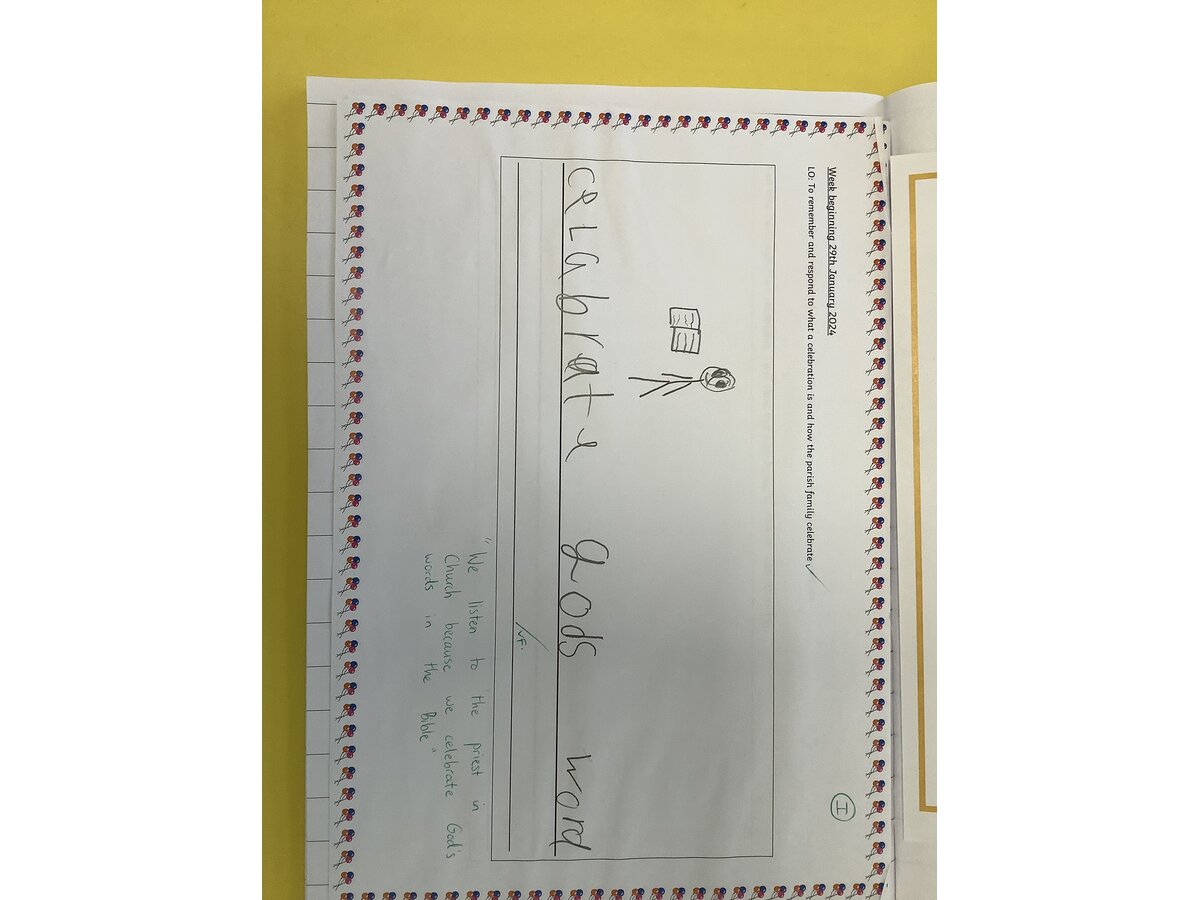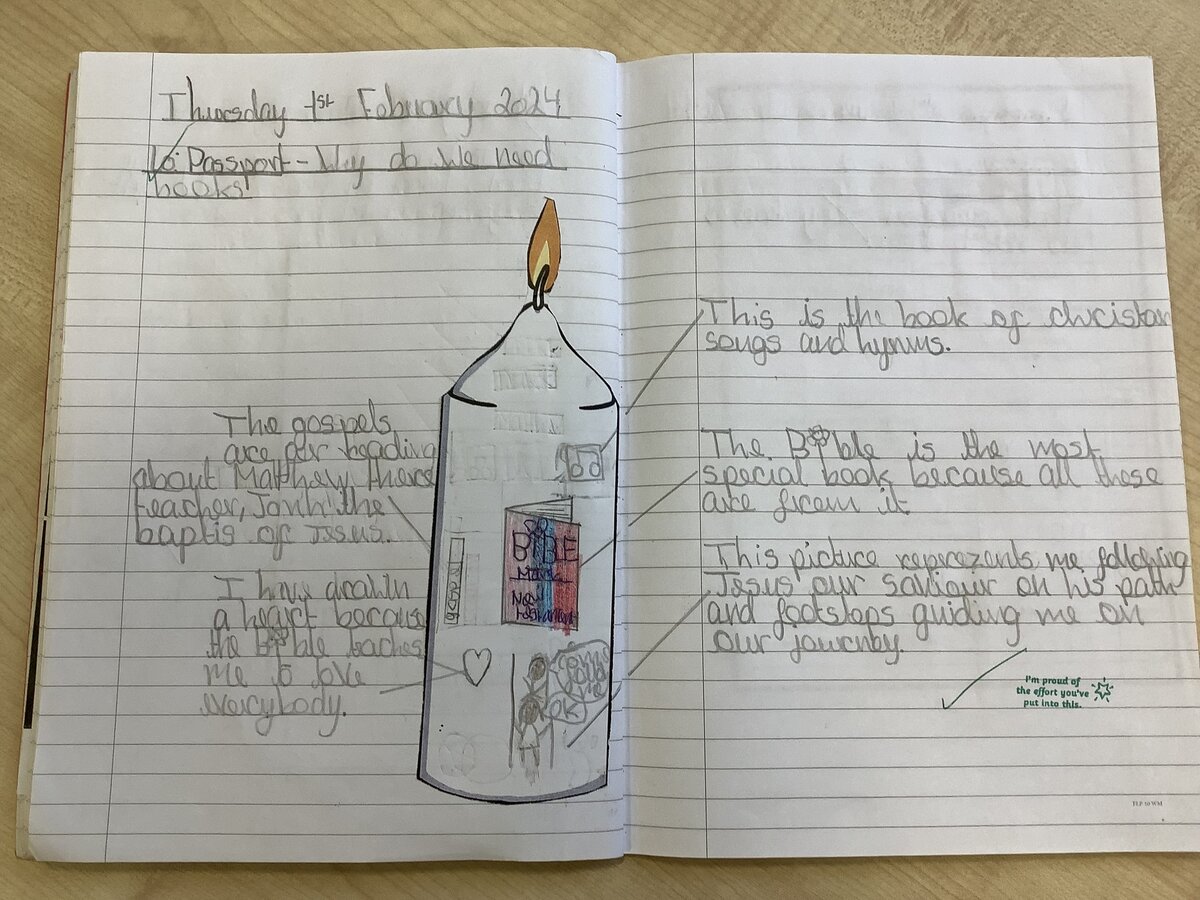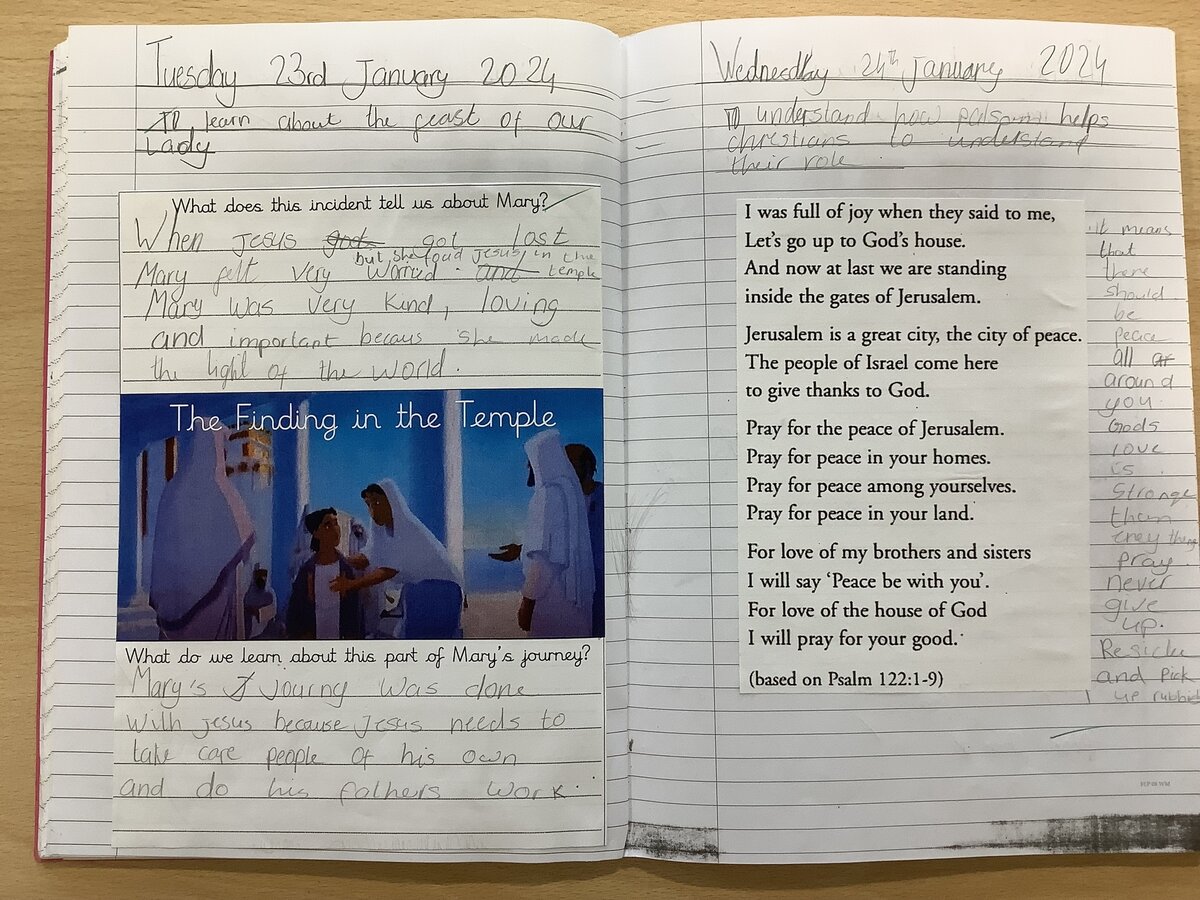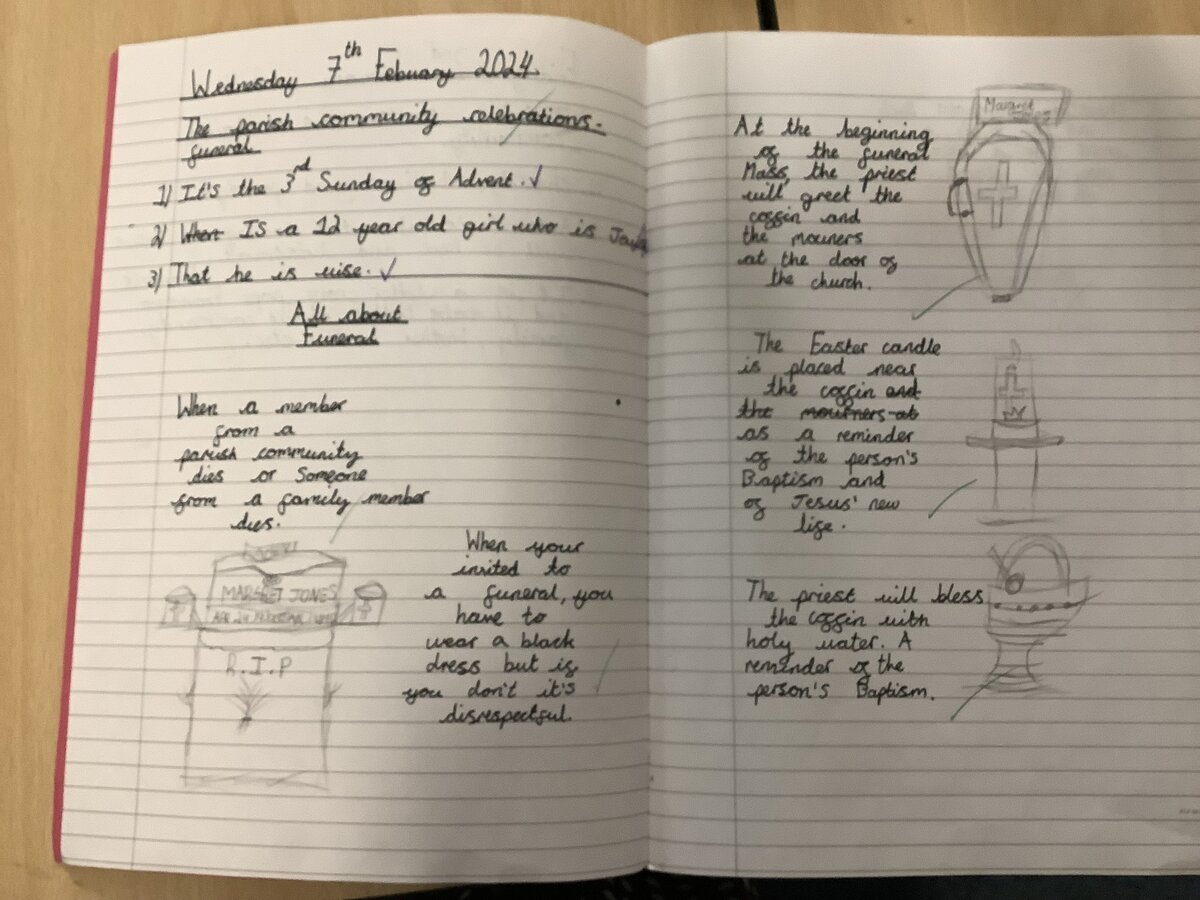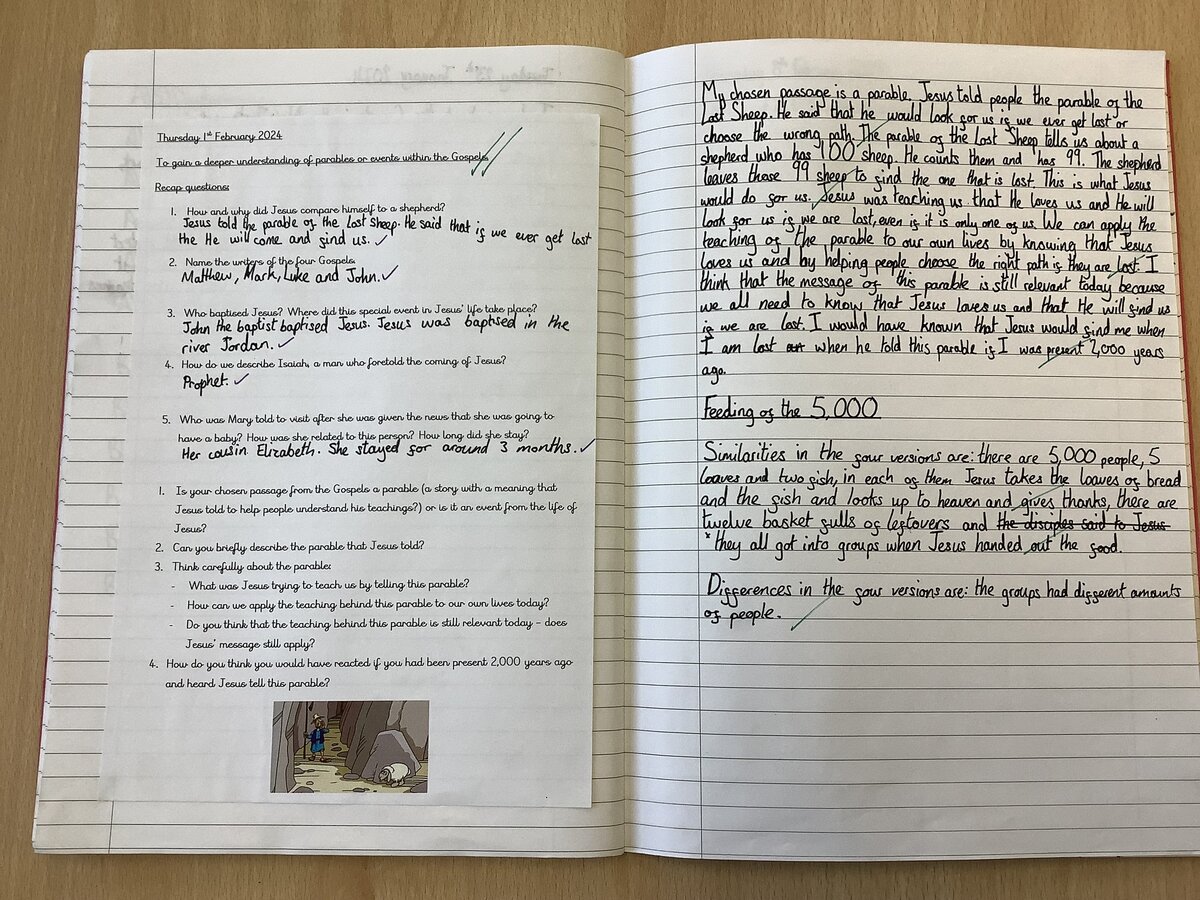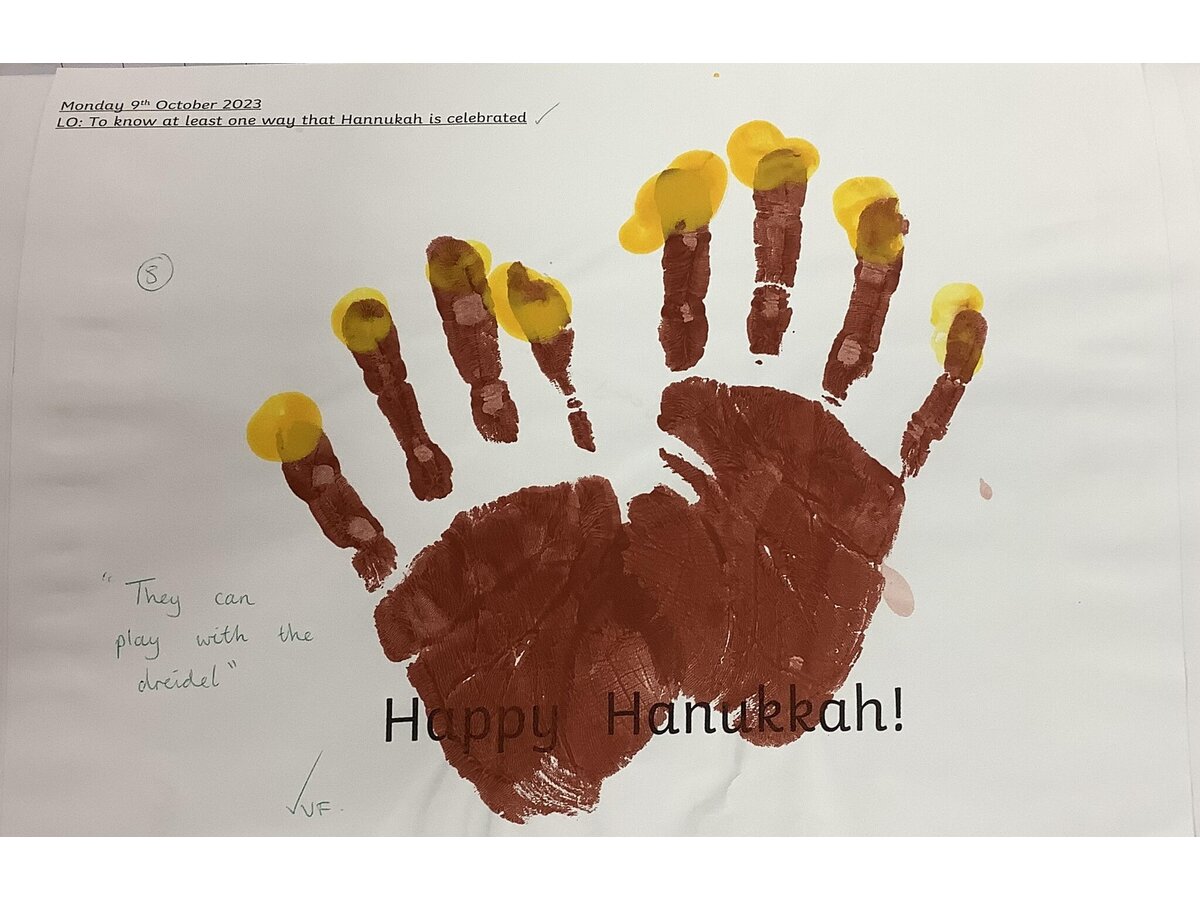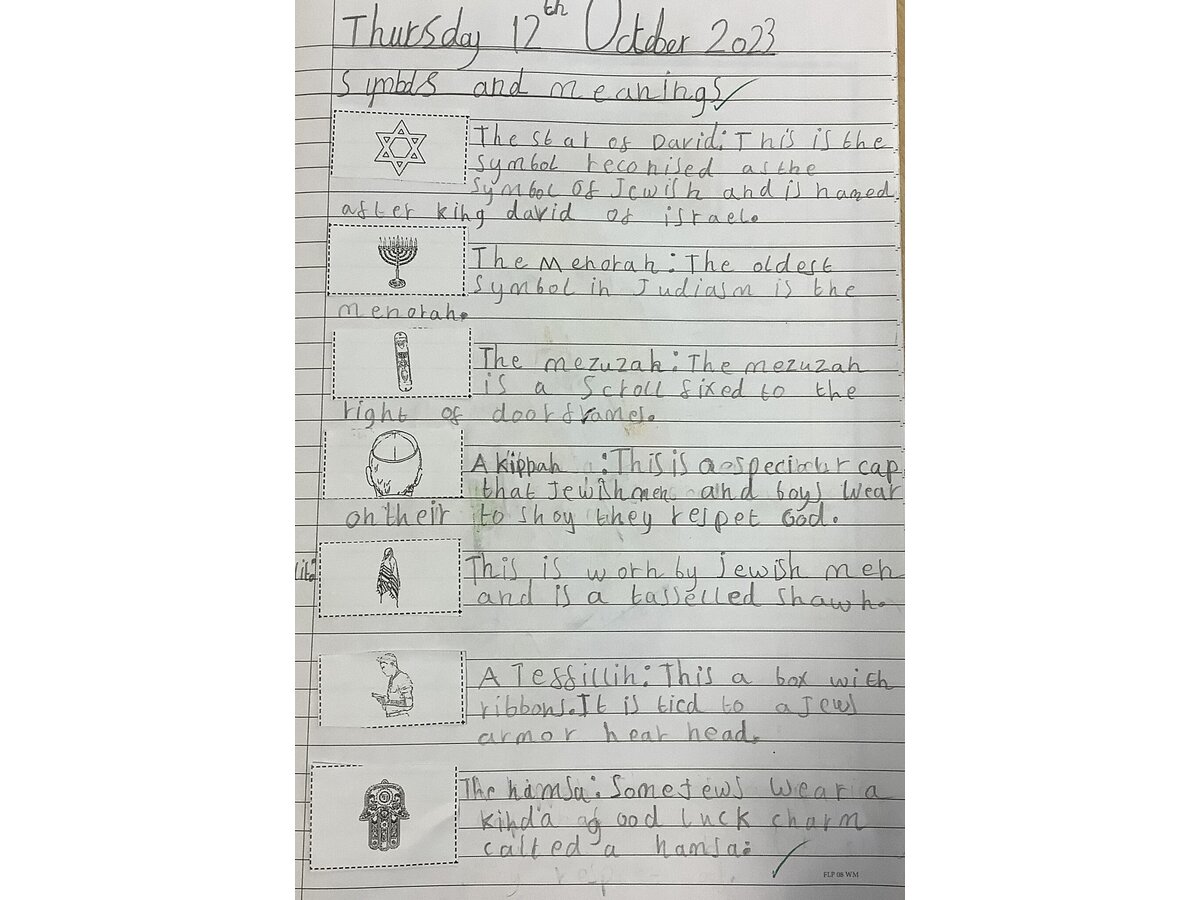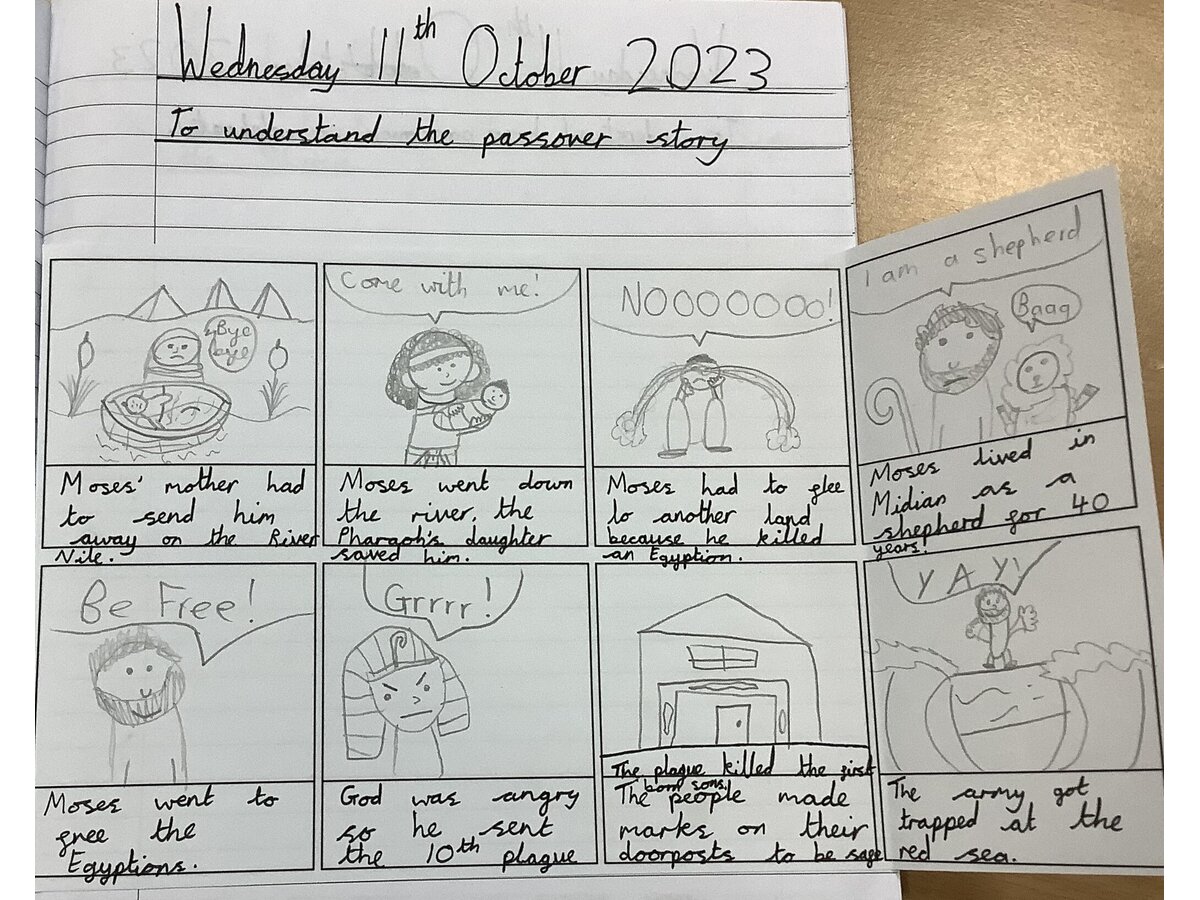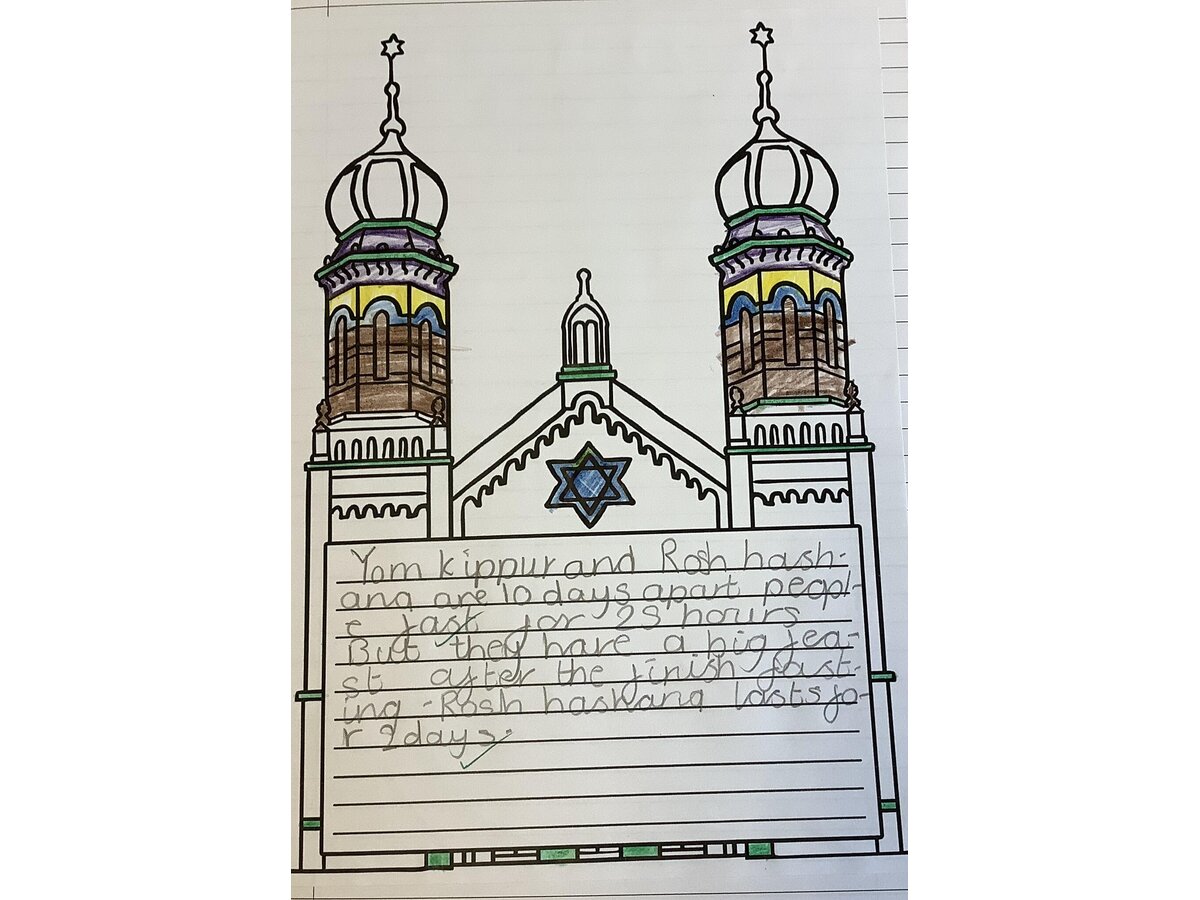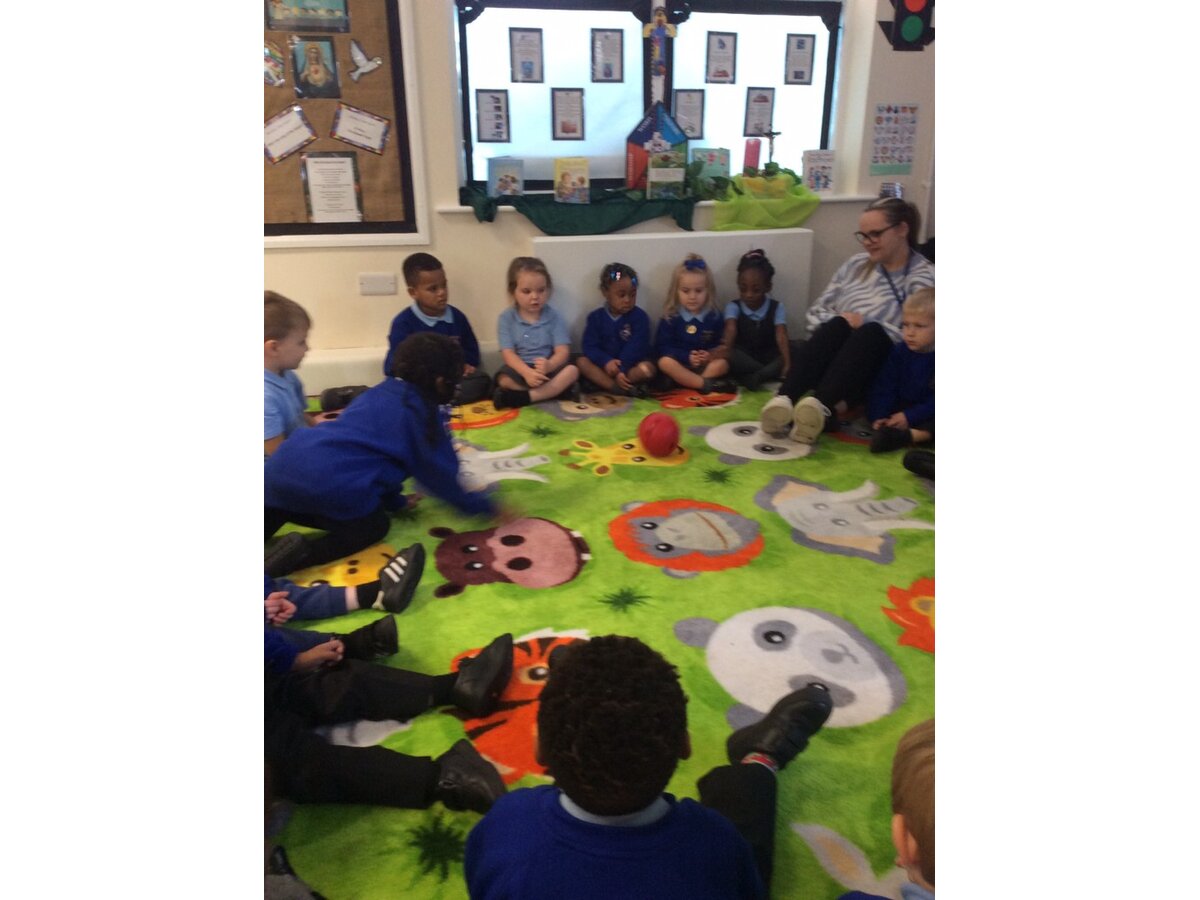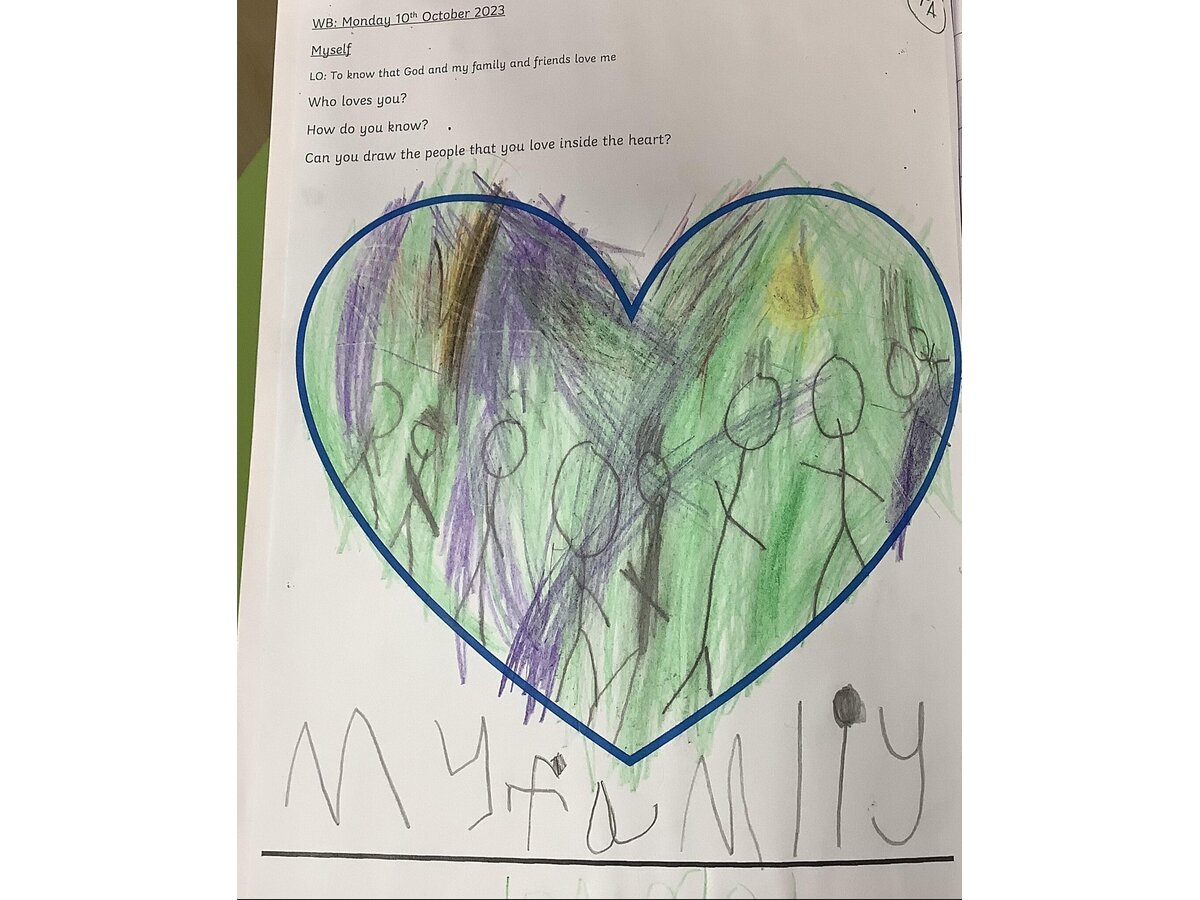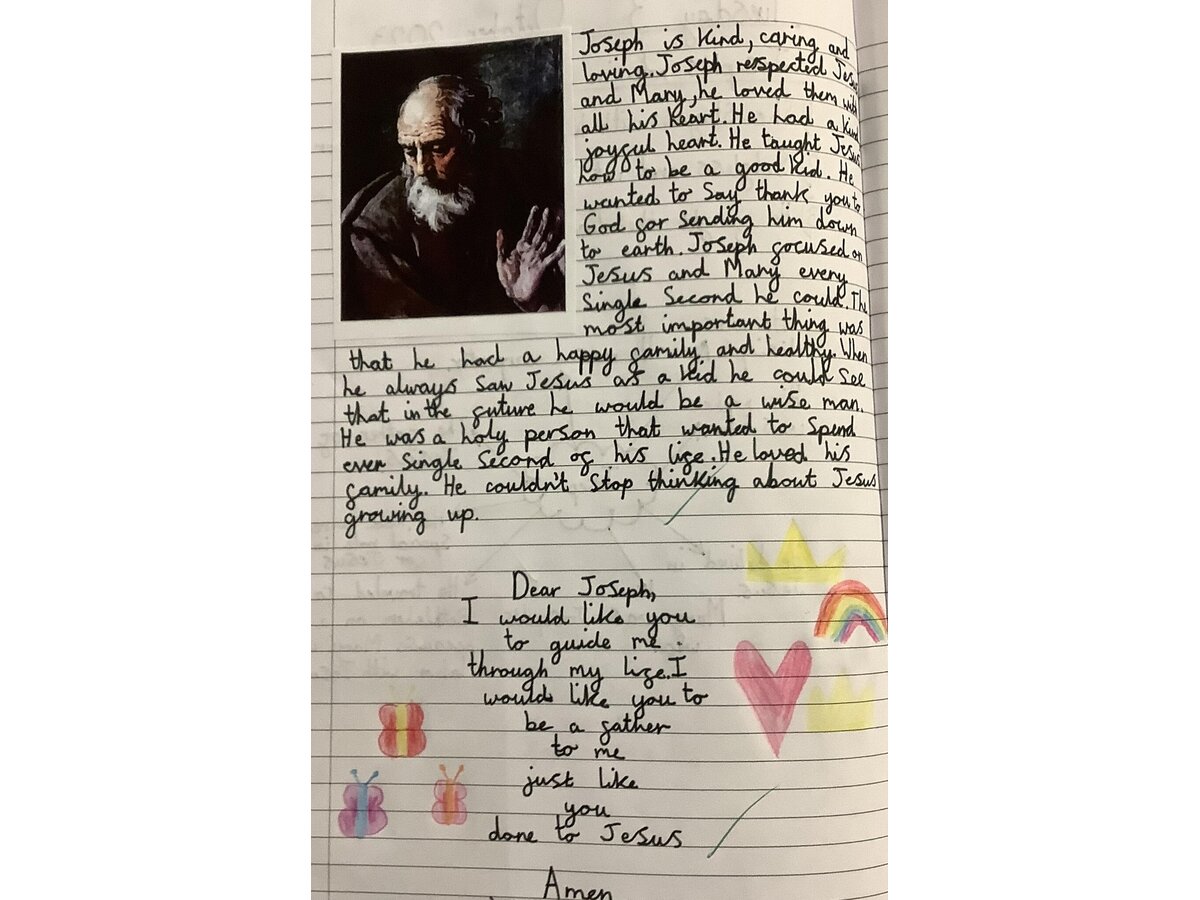Religion Curriculum Overview
As a Catholic School, we want to work closely with the home and parish to create an atmosphere where, through teaching and example, our children will be helped to enter into a loving relationship with God our Father and with each other as members of God’s family. Our children will be strengthened by their academic knowledge of the Catholic religion and it's practices in Mass and in daily life, but perhaps more importantly, their spirituality will be nurtured as they question, understand and apply the Catholic teachings to their every day lives.
RE curriculum overview
At St Clare's R.C. Primary School, we believe that a child’s spiritual, moral and social development is every bit as important as their academic development. This means, in Religious Education, we are not just teaching a curriculum subject but also a living faith.
The following aims and objectives are taken from the Curriculum Directory for Catholic Schools published for the Bishops’ Conference by the Catholic Education Service.
Aims:
Religious Education in Catholic schools aims to promote:
- Knowledge and understanding of Catholic faith and life
- Knowledge and understanding of the response of faith to the ultimate questions about human life, its origin and purpose
- The skills required to engage in examination and reflection upon religious belief and practice
Objectives:
The objectives of Religious Education in Catholic schools are:
- to develop knowledge and understanding of the mystery of God and Jesus Christ, of the Church and the central beliefs which Catholics hold
- to develop awareness and appreciation of Catholic belief, understanding of its impact on personal and social behaviour and of the vital relationship between faith and life, life and death
- to encourage investigation and reflection by pupils to develop appropriate skills; for example, ability to listen, to think critically, spiritually,
- to acquire knowledge and organise it effectively
- to make informal judgements
- to foster appropriate attitudes for example: respect for truth, respect for the views of others, awareness of spiritual and moral responsibility and of the demands of religious commitment in everyday life, especially the challenge of living a multicultural, multi faith society. (Curriculum Directory P.10)
Outcome:
The outcome of Religious Education is religiously literate young people who have the knowledge, understanding and skills – appropriate to their age and capacity – to think spiritually, ethically and theologically, and who are aware of the demands of religious commitment in everyday life. (Curriculum Directory P.6)
We ensure that all our pupils are engaged in RE lessons and adapt our teaching and learning using a graduated response to help ensure inclusivity.
Our school policies related to Religion and the Religious life of the school are below.
RE policies
Prayer Progression
Prayer is an integral part of our school day at St Clare's. All children pray each morning, before lunch, after lunch and at the end of each day. Prayer is an important part of our worship as it provides us with the opportunity to communicate with God. During prayer, we raise our hearts and minds to God. Praying helps us to develop spiritually and we know that God has the power to grant our prayers.
Below is a document detailing prayer progression at St Clare's. Children will continue to pray the prayers from previous year groups as they progress through the school.
Whole School Prayer Progression
CURRICULUM RE
From September 2025, we have began introducing the new Religious Education Directory, To Know You More Clearly. This will be gradually rolled out across EYFS, KS1 and KS2 during the 2025–2026 academic year.
To Know You More Clearly is designed to help children grow in their understanding of Catholic teaching and values, while encouraging them to explore their faith with curiosity and confidence. We will also be using the new Lighting the Path resources as they become available to enhance teaching and learning. Through engaging lessons, reflection, and interactive activities, pupils at St Clare's are supported to deepen their relationship with God and develop a strong sense of compassion, awe, and wonder.
Religious Education is central to school life and is taught for 10% of curriculum time in every class, ensuring all pupils benefit from this rich and meaningful journey of faith.
Autumn 1 Branch 1: Creation and Covenant
In the first branch children have been learning that God is the creator of the universe and that all existence comes from him, forming the foundation of the covenant he establishes with humanity. Through Bible stories starting from the first book Genesis, prayers like the Our Father, and activities connecting to the Laudato Si' encyclical, the children have learnt to be good stewards of God's creation and recognise their responsibility to care for the world. The branch emphasises that God's love is evident in creation. Have a look at some of our beautiful work:
Autumn 2 Branch 2: Prophecy and Promise
In the second branch children have been focussing on the spiritual preparation for the coming of Jesus at Christmas. The key themes they have been exploring are Prophets as messengers, understanding God's promises in the Old Testament and their fulfilment in Jesus, and the Nativity story exploring Luke's Gospel accounts (Annunciation, Elizabeth, Shepherds, Jesus' birth). The children have also learnt about Mary's Role as the Mother of God and her "Yes" to God, linking to the Magnificat and the have explored Advent using the metaphor of light to represent hope and Jesus' arrival. Here are some examples of work the children have completed:
Spring 1 Branch 3: Galilee to Jerusalem
In the third branch Galilee to Jerusalem classes have been focussing on Jesus' ministry, highlighting his journey, miracles, and parables that announce the Kingdom of God. The children have learnt about how Jesus welcomed all, showed compassion, and taught about love, forgiveness, and service, connecting these teachings to the Church's mission today. In the pictures below you can find some examples of children's understanding of Jesus' mission and how they put his values and faith into action.
Eucharist : Relating
In this topic we focused on the different parts of the Mass. This started off simply with our EYFS children recognising that we gather together as a family at Mass, listen to God's word and receive Jesus in Holy Communion. This progressed in each year group with children knowing that we re-enact the Last Supper at Mass; learning about the different parts to the Mass; the different prayers and responses we make; and that we are one body in union with Christ. See the gallery below for examples of our pupils' work throughout the school.
Local church : community
In this topic, our younger children learnt that the parish community gathers to celebrate events e.g Baptism, Christmas and weddings. In key stage 1, pupils learnt about our Holy Book, the Bible. This learning progressed to the church's liturgical year, vocations, the structure of a diocese and that God is present in Scripture as the topic progressed throughout each year group. Here are some examples of our work:
Advent:
During Advent we focus on our spiritual preparation for the coming of Jesus at Christmas. The children start by looking at the fact that Christmas is Jesus' birthday and that advent is the time for us to get ready for Jesus' arrival. As children progress in the school, they begin to learn more about the liturgical year of Advent. Children look at the Nativity story, the Annunciation, the Incarnation, the visitation of the Wise Men and the second coming of Jesus Christ.
See the gallery below for some examples of our work throughout the school linked to this topic.
Multi-faith: Islam
For our multi-faith topic this half term the children have been learning about Islam. Each year, the pupils learn more about how their Muslim brothers and sisters live and what they believe. The children learn about different stories, prayers, places of worship, holy books, beliefs, festivals and values.
Below are some examples of what the children have been learning.
Belonging: Baptism and Confirmation
Our second topic is centered around belonging and the Sacraments that we take to be a part of God's family. Children learn that a Sacrament is God's way of being present at special moments in our lives. They begin by learning about the fact that God welcomes everyone and that Baptism is an invitation to belong to the church family. They learn about the Rite of Baptism, godparents and the signs and symbols used. As they progress in the school, they look at the Sacrament of Confirmation, how the Holy Spirit works in our lives, the Sacrament of Marriage, the ministerial priesthood and the Sacrament of Ordination.
See the gallery below for some examples of our work throughout the school linked to this topic.
Multi-faith: Judaism
We live in a multi-cultural society where it is important that we have respect and understanding of other people and their beliefs. This is part of our mission as Catholics and part of our British Values. God gave us the world and we need to learn how to live in peace and harmony with each other. Understanding what and why people have different beliefs plays an important role in this. We are all part of God's family, though we are many parts we all make up Christ's body. Jesus himself was brought up in the Jewish faith following their customs and traditions.
Below are some examples of what our learning of Judaism focused on.
We started off September 2023 by re-visiting our School Mission Statement, its meaning and how we can live it every day. We also learnt about our class saints, our class Scripture quotes and class hymns.
Following this, we began our first topic in our Come and See scheme of work. This centred around families and love. It started off with our younger children knowing that they are loved by God and by our families. It also incorporated looking at Jesus's family and the role Joseph played in his life. At the higher end of the school, the topic progressed onto how God's love is unconditional, we do not need to do anything special to earn it and this was related to the Parable of the Prodigal Son.
See the gallery below for some examples of our work throughout the school linked to this topic.
Collective Worship in Spanish
Praying at Home
We would encourage children to carry on daily worship at home with their families . Here are some useful links to help you if you need any resources.
.png)
